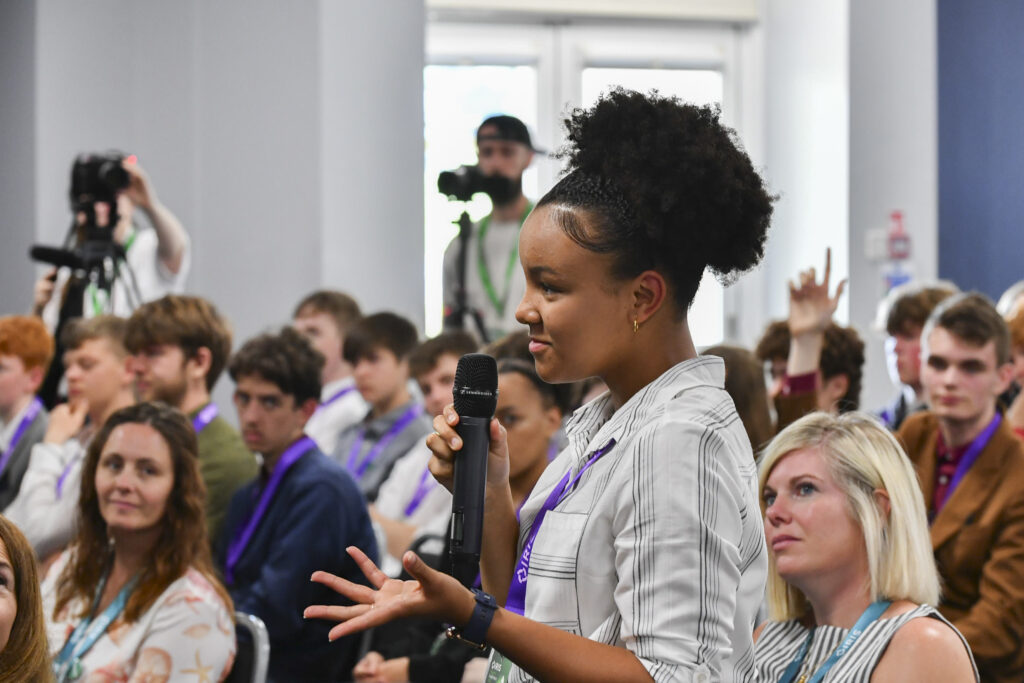
Innovation, teamwork and communication skills at the IRIS 2025 student conferences
The IRIS 2025 student conferences have once again showcased the incredible potential of young scientists.
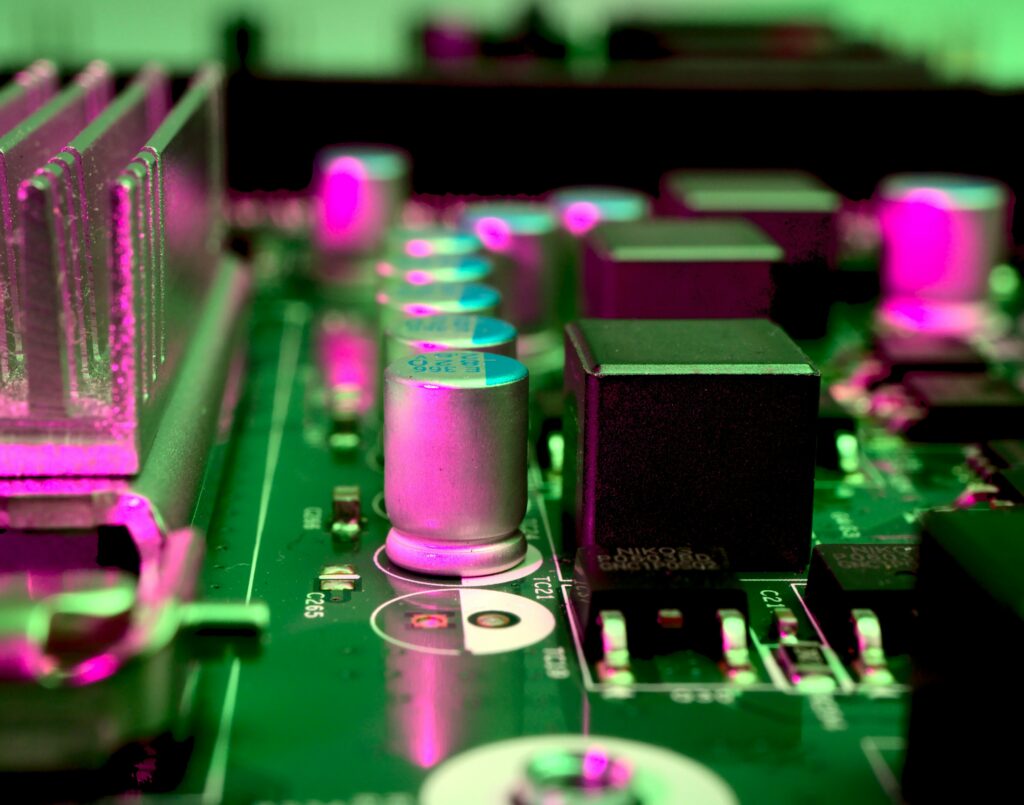
Let students be the backbone of the government’s AI plans
Our director, Jo Foster, is already seeing students use AI as part of scientific research, and believes they can be at the heart of the government’s latest AI ambitions.

Contribute to the future of the school curriculum
Teachers, students and parents are invited to share their views on how the science curriculum in schools can be improved.
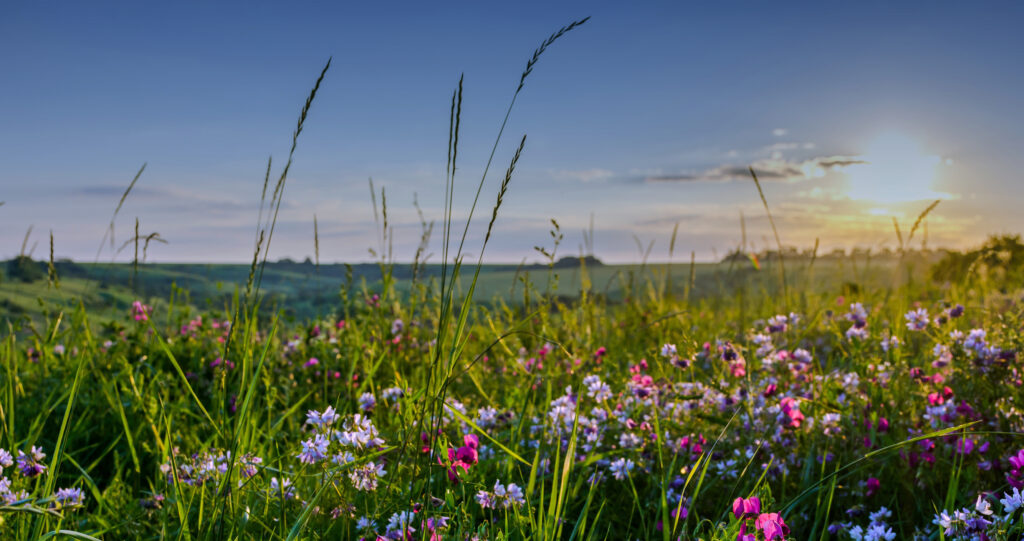
Wild Things: students find ways to improve biodiversity in their communities
The latest research project from IRIS encourages young people to support and improve local flora and fauna.

Girls can shape our digital future—if only more knew it
What do we stand to lose if girls do not play a role in the UK’s digital economy?
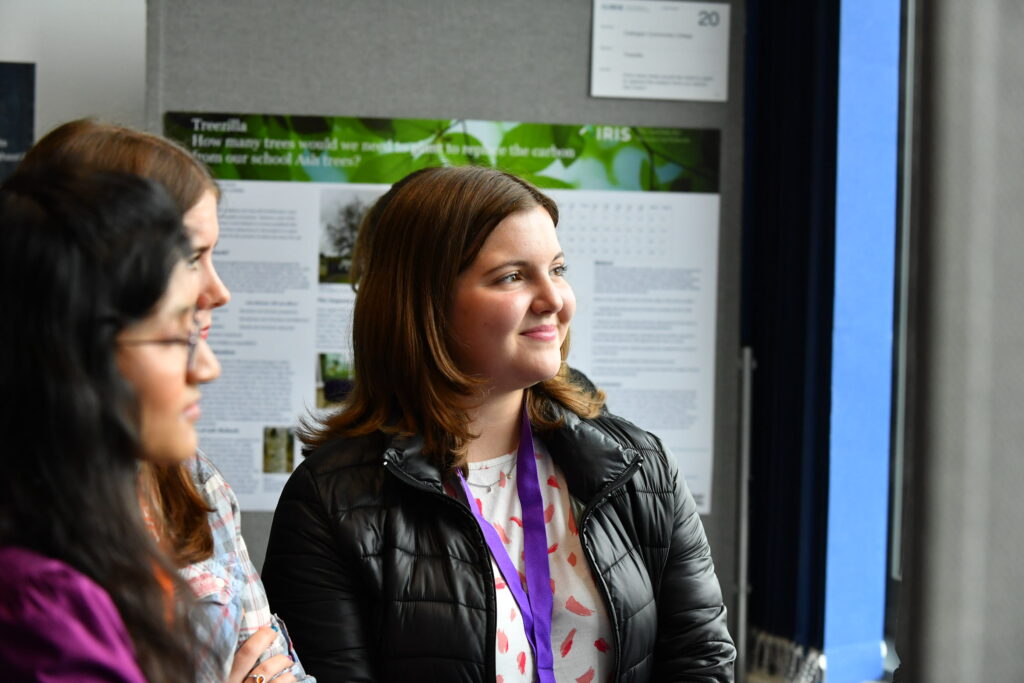
IRIS Student Research Conferences 2024
From hydrogen fuelled travel to building on the moon, students shared exciting discoveries.

IRIS Student Research Conferences 2024
From hydrogen fuelled travel to building on the moon, students shared exciting discoveries.

Breaking down barriers, one after another
Georgie Lott shares her success in boosting stem engagement at her former school and what led her to IRIS.
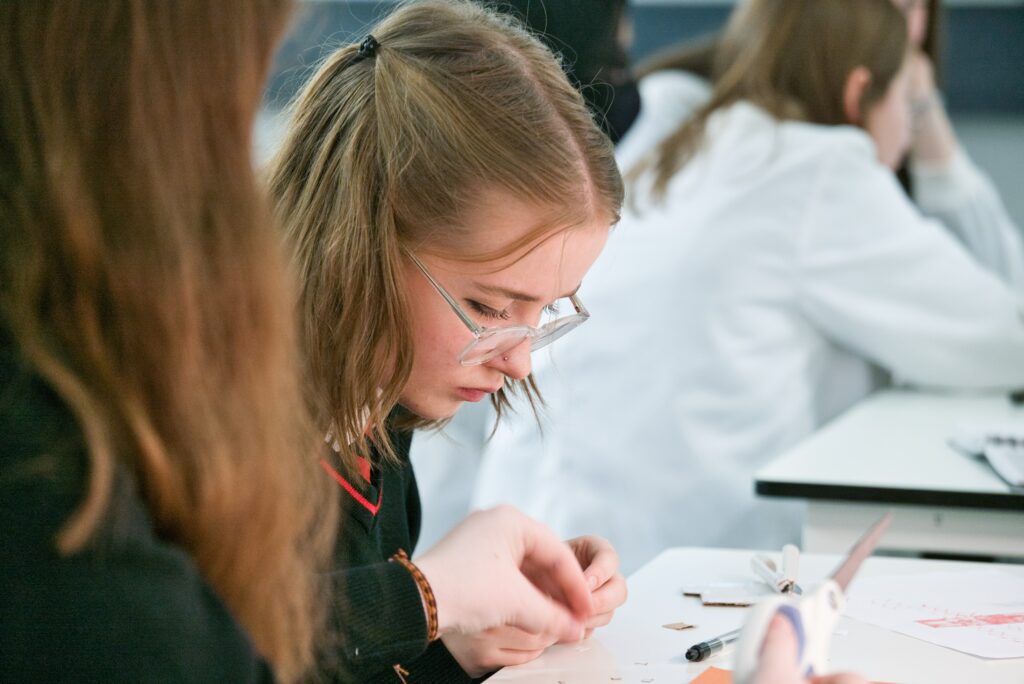
Science practicals need to push experimental boundaries
IRIS Director sees practicals as a chance to let young people freely explore answers to real-world issues.
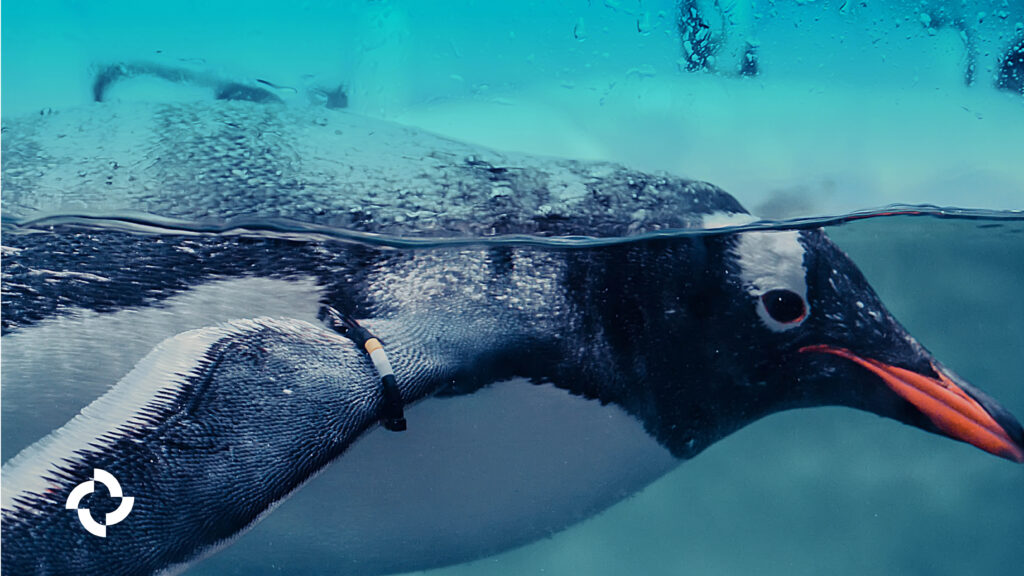
Year 10 students prompt penguin discovery
Year 10 students inspire the discovery of nearly a third of known penguin colonies.

Anyone can do science—just not me!
Students still struggle to see themselves as ‘science people’. How can we make STEM more inclusive?
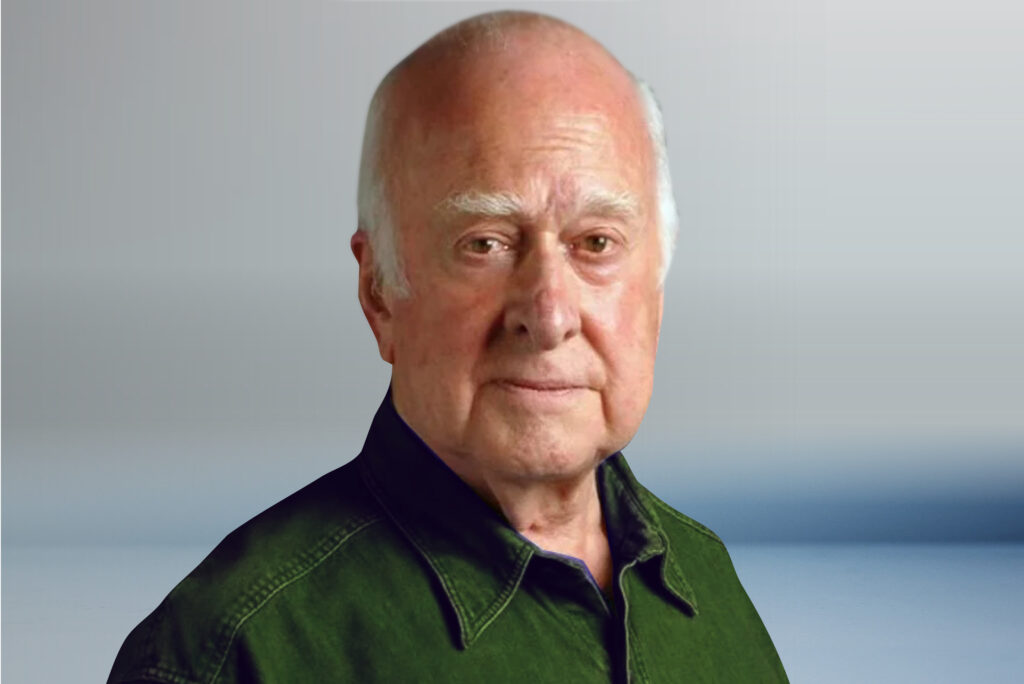
Tribute to Peter Higgs
Peter Higgs – His scientific legacy will continue to inspire curious minds.
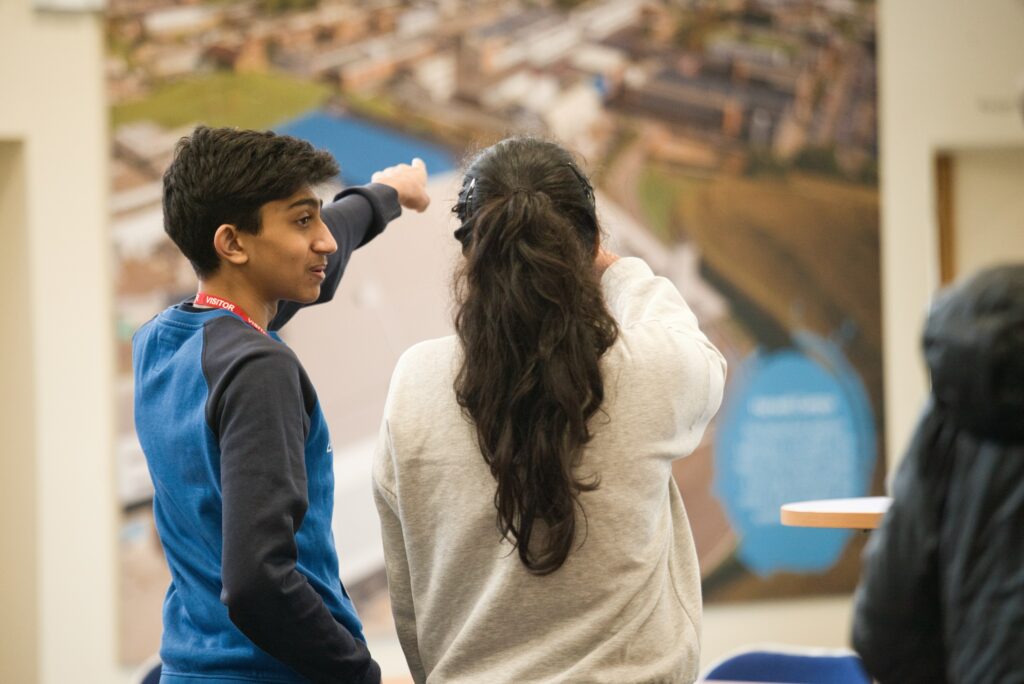
Students unveil the wonders of particle physics
Students learn coding methods and the fundamentals of the Standard Model from leading physicists.
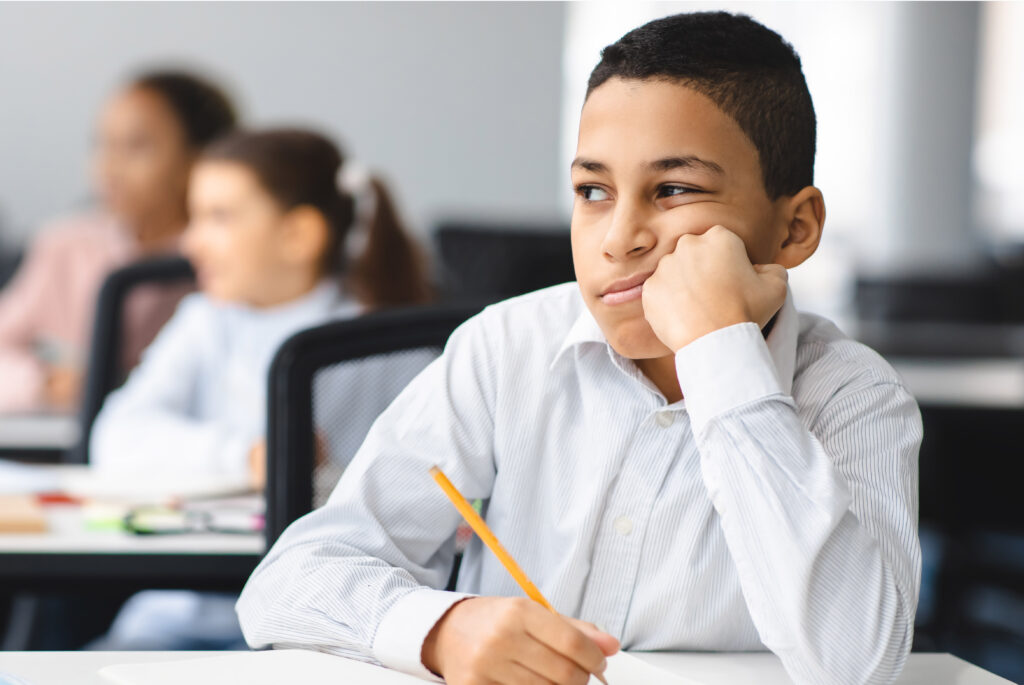
Students on STEM lessons: important but not interesting
Over half students surveyed don’t enjoy their lessons. What is missing from their learning experience?
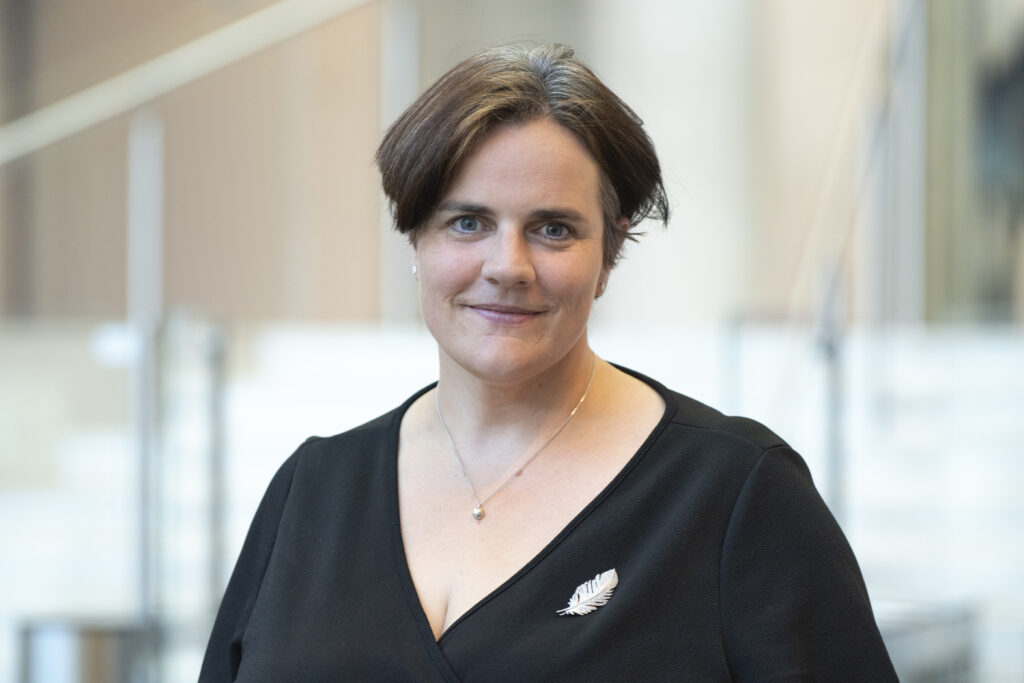
Paradigm shift needed to transform attitudes to the sciences
Our director, Jo Foster, talks about the fresh approach needed to truly change STEM education.

What we’re watching this Christmas: the Christmas Lectures & AI research
We shine a light on AI research, from a tennis ball retrieving robot to simplifying processes.
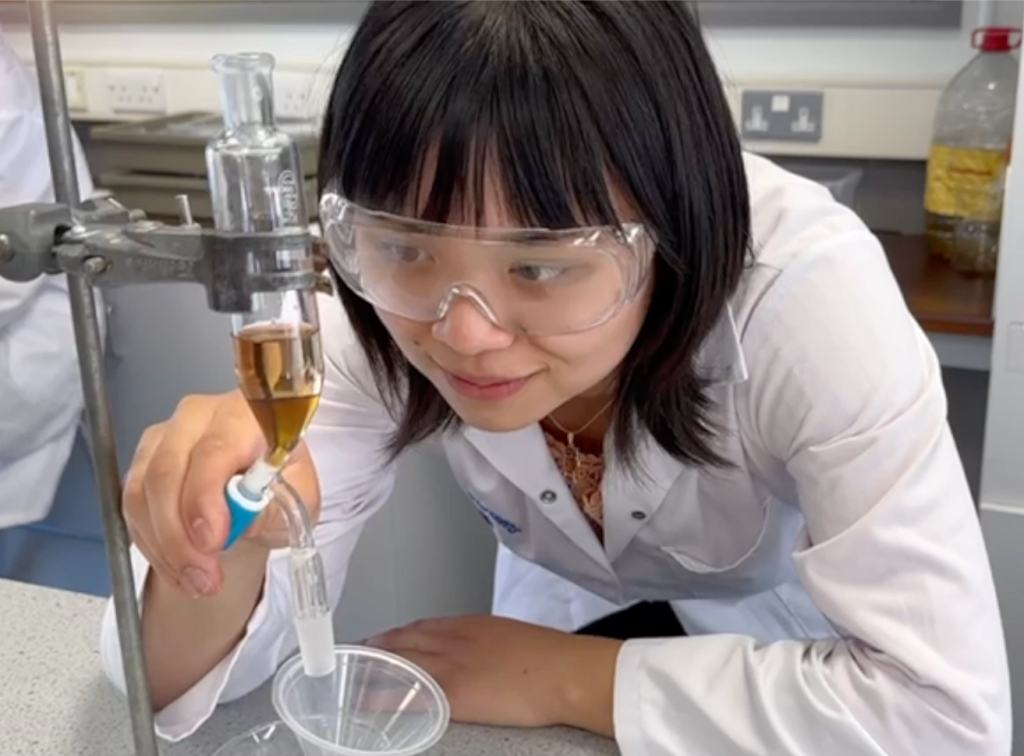
IRIS and Queens University Belfast shortlisted for a Times Higher Education Award
Our outreach initiative encouraging people from non-traditional backgrounds to enter higher education.
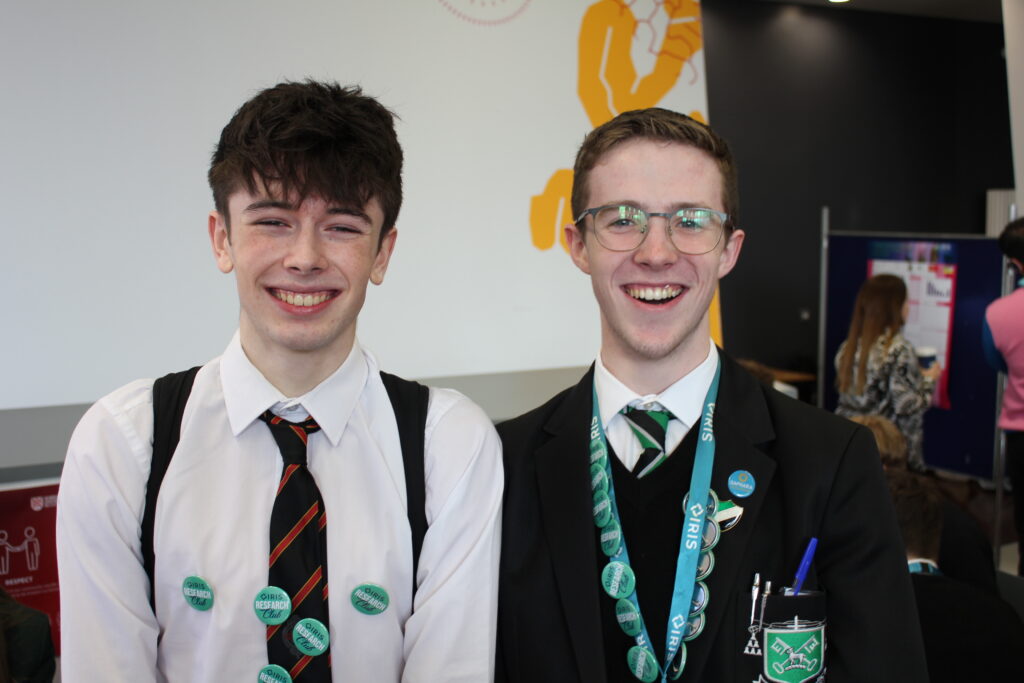
Queen’s University chemistry conference smells like teen spirit
Students share their greener fragrance research with their peers and chemists at QUB.
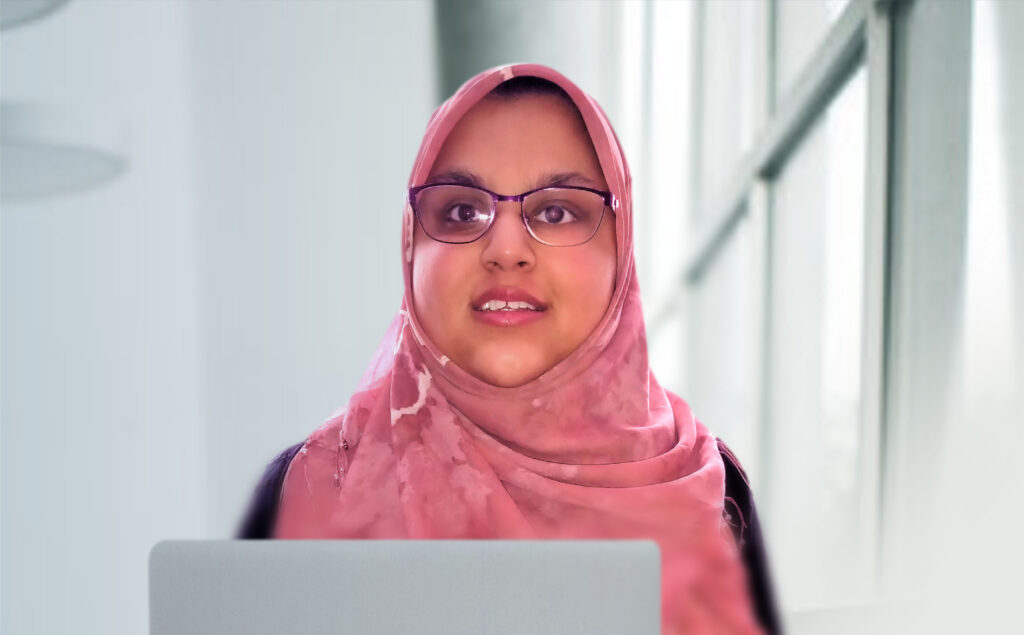
IRIS alumna becomes published author with cosmic ray research
We share Surayyah’s cosmic ray research paper, recently published in a peer-reviewed journal.
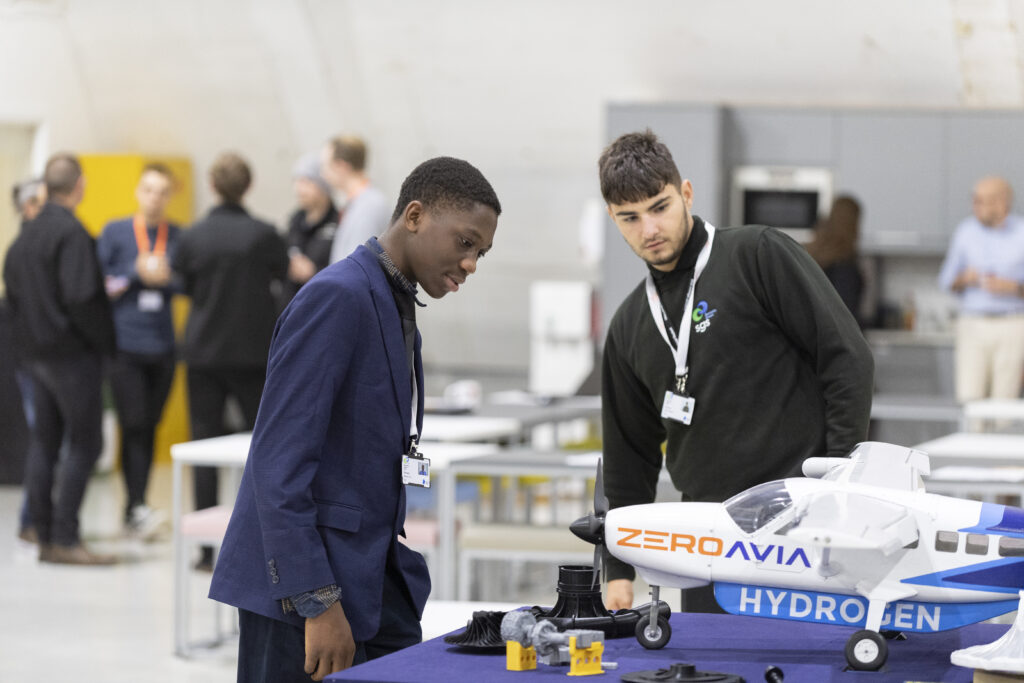
Future Flight: Pupils join scientific search for aviation climate solutions
A team of UK students work with ZeroAvia engineers to research the practicalities of hydrogen-electric flight.
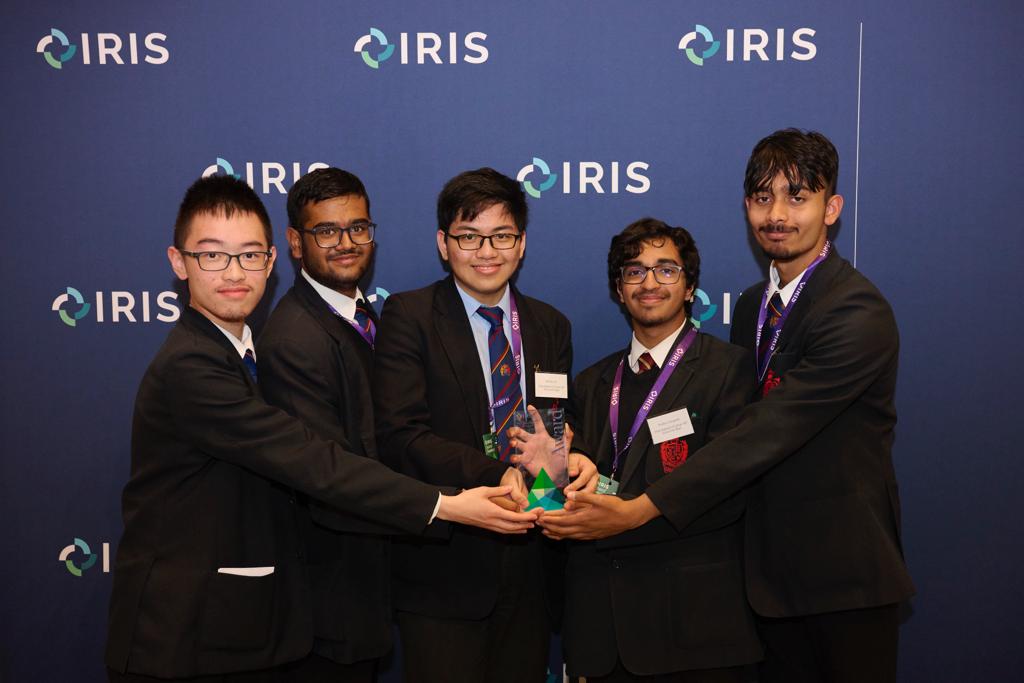
IRIS Awards 2023 – Celebrating young researchers and those that inspired them
We reveal the award winners praised last night at the Crick Institute in London.
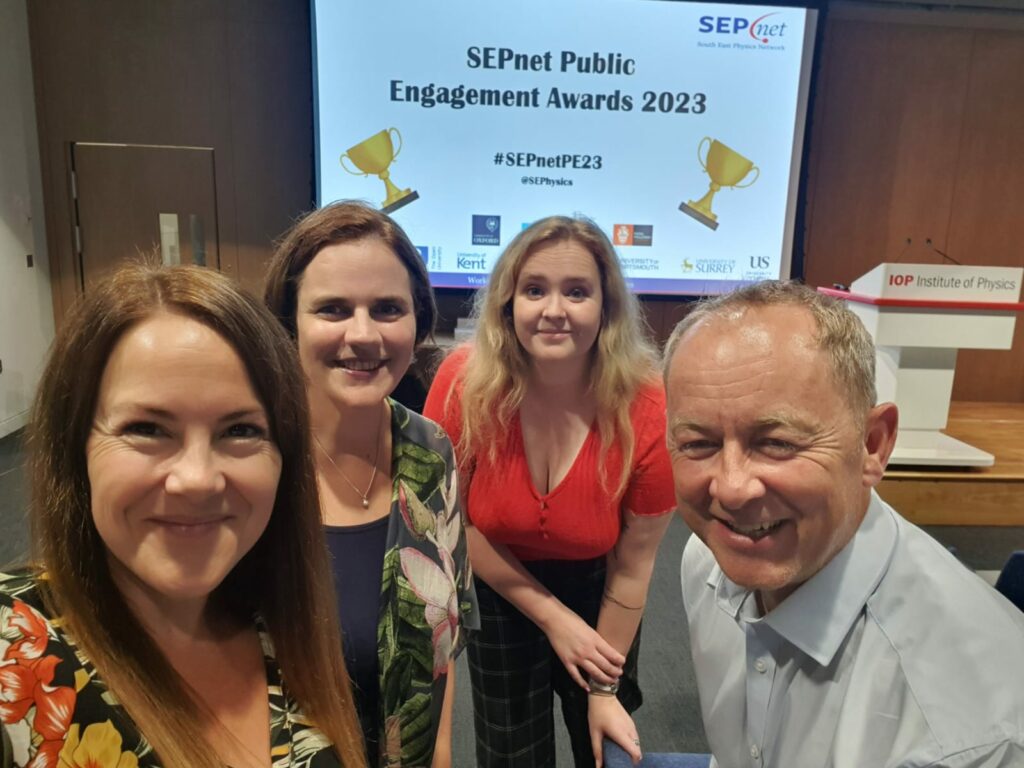
Big Data: ATLAS wins physics engagement award
Our collaboration with the University of Oxford and the Rutherford Appleton Laboratory takes the prize.
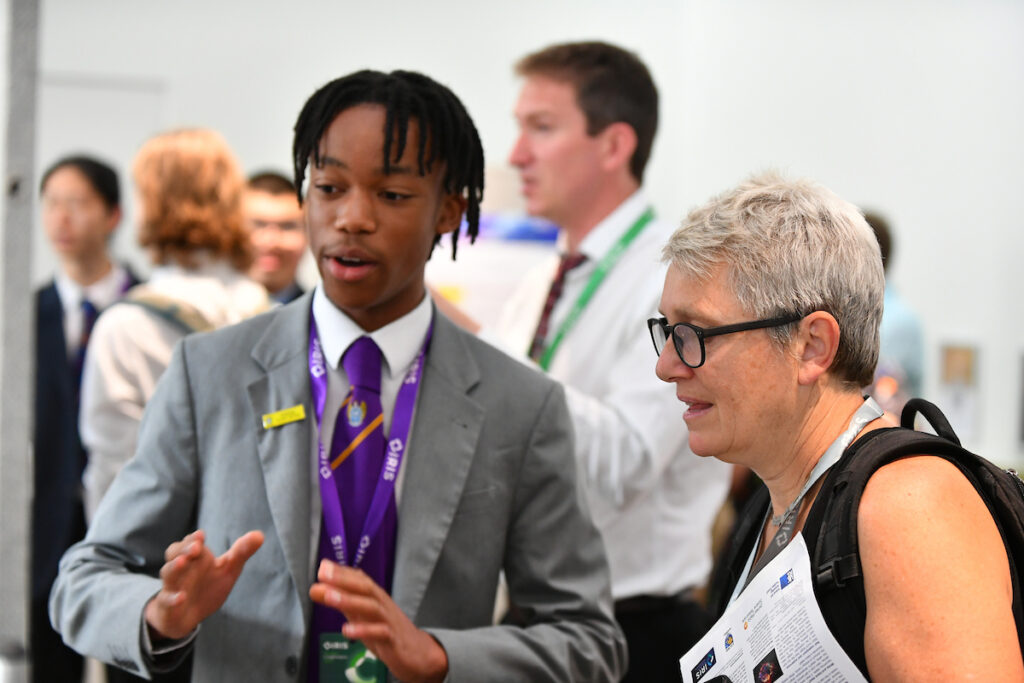
IRIS London conference: AI ball boys & girls, future hackers & searching for wolf stars
Young researchers travelled from Belfast to Dover to share their research at the London IRIS conference.
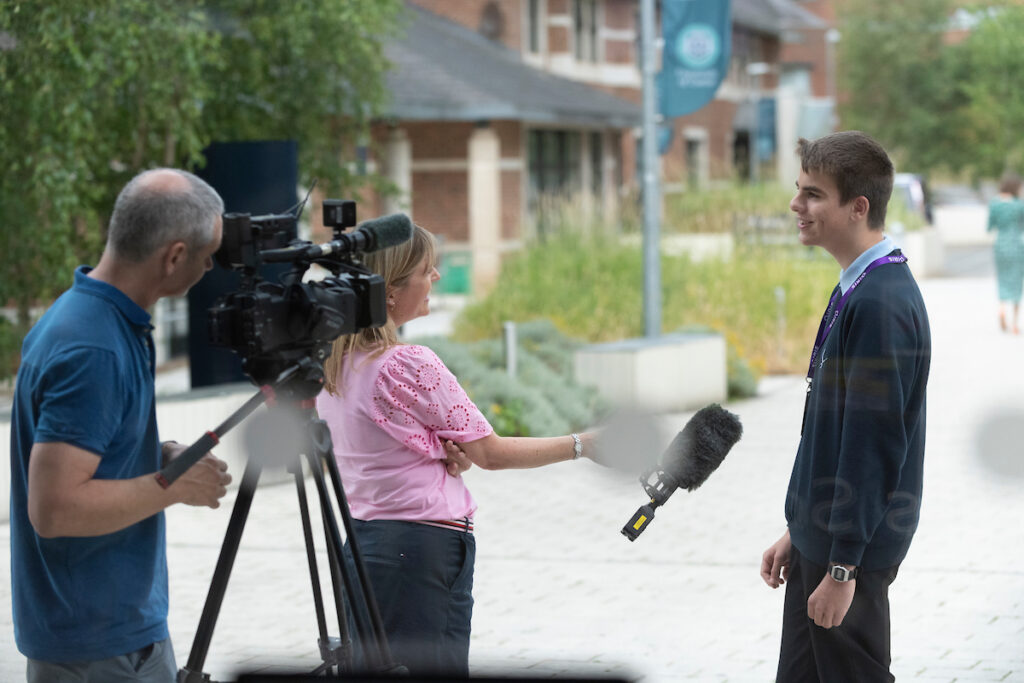
Tracking sewage from space: Cornish student highlights pollution problem
Arthur, a pupil at Mullion School in Helston, uses satellite images to monitor sewage pollution.

IRIS Manchester conference: robot dentists, Coeliac disease awareness & preventing organ rejection
We highlight a few of the many research discoveries shared by young people at this year’s conference.

Serving up success: students create AI robot ball boy
Queen Elizabeth’s Grammar School students’ robot can safely retrieve tennis balls on the busiest of courts.
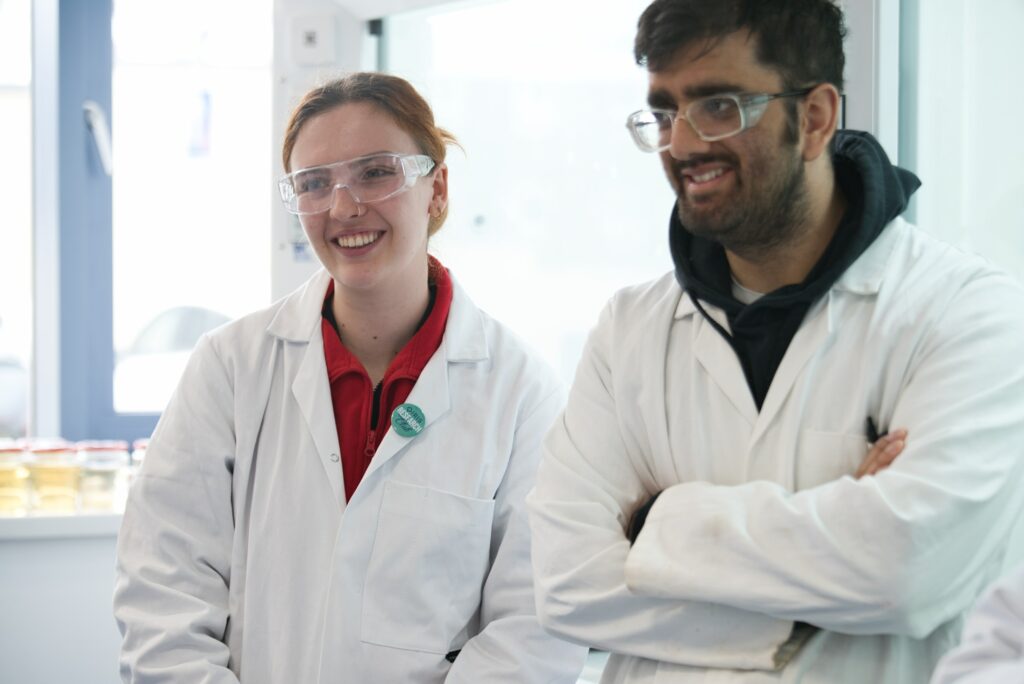
The scent of success: IRIS recognised at the Education Awards
Our Greener Fragrances project was shortlisted for an outreach award at the Education Awards.
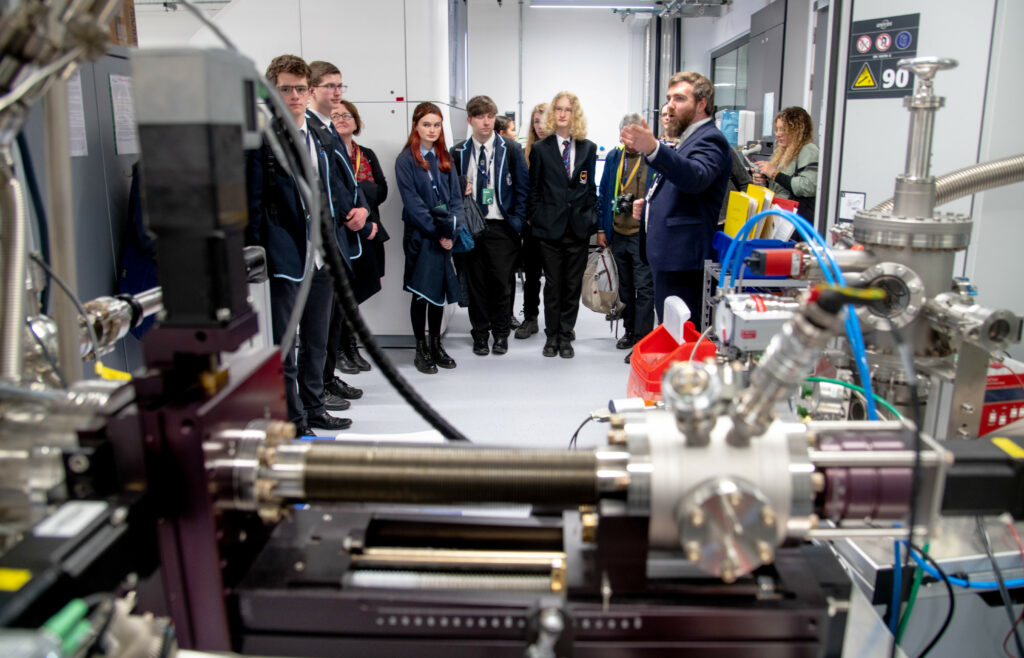
Art, science and computer design at a nanoscale
Students visit the University of Leeds to talk research and discover careers in materials sciences.
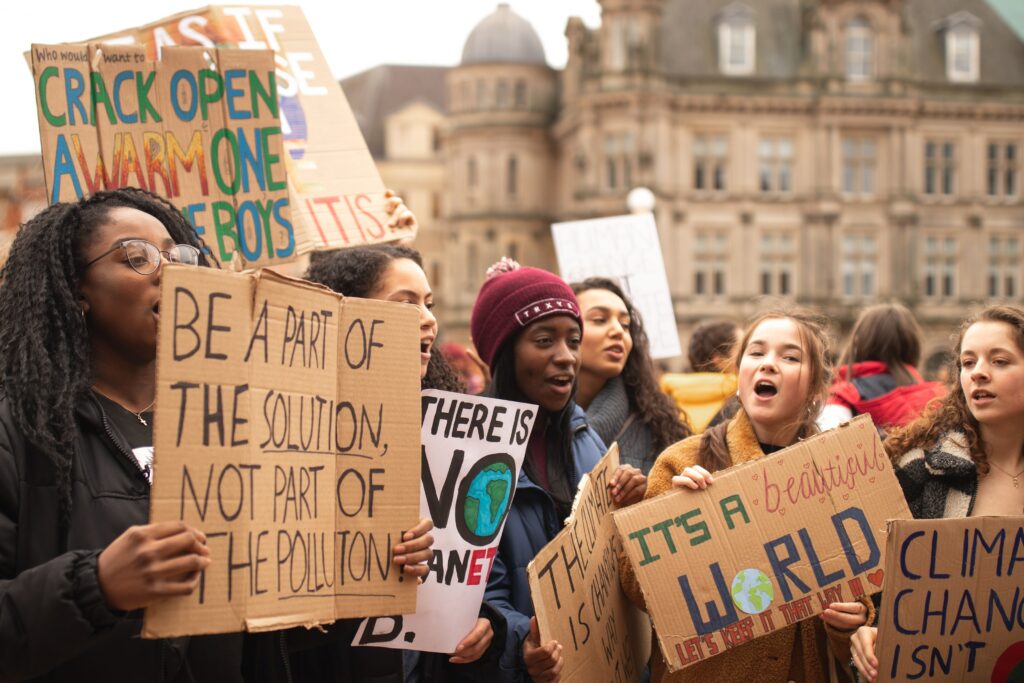
10 ideas for lowering carbon emissions in schools
Our director, Jo Foster, offers 10 ways that schools can empower students to become active citizens.
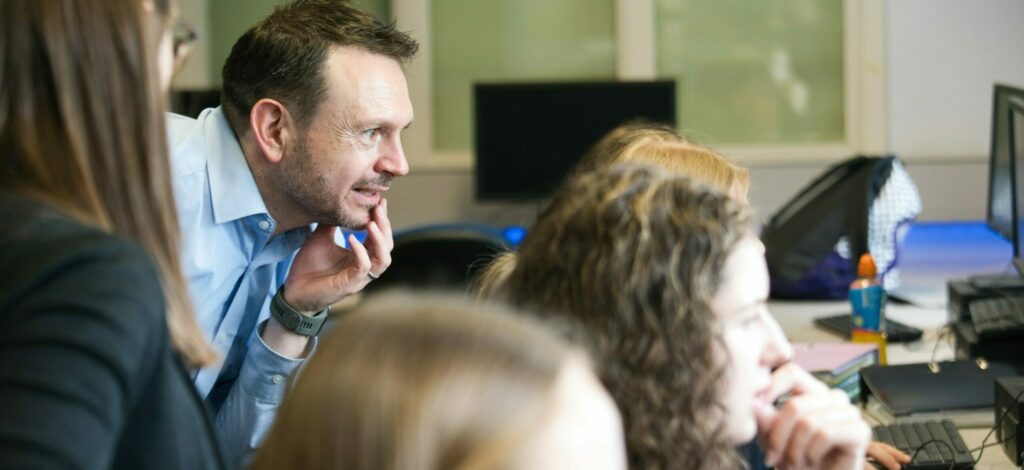
Leading particle physicist returns home to meet with aspiring young scientists
Alan Barr sets students on a quest to answer some of science’s biggest questions.
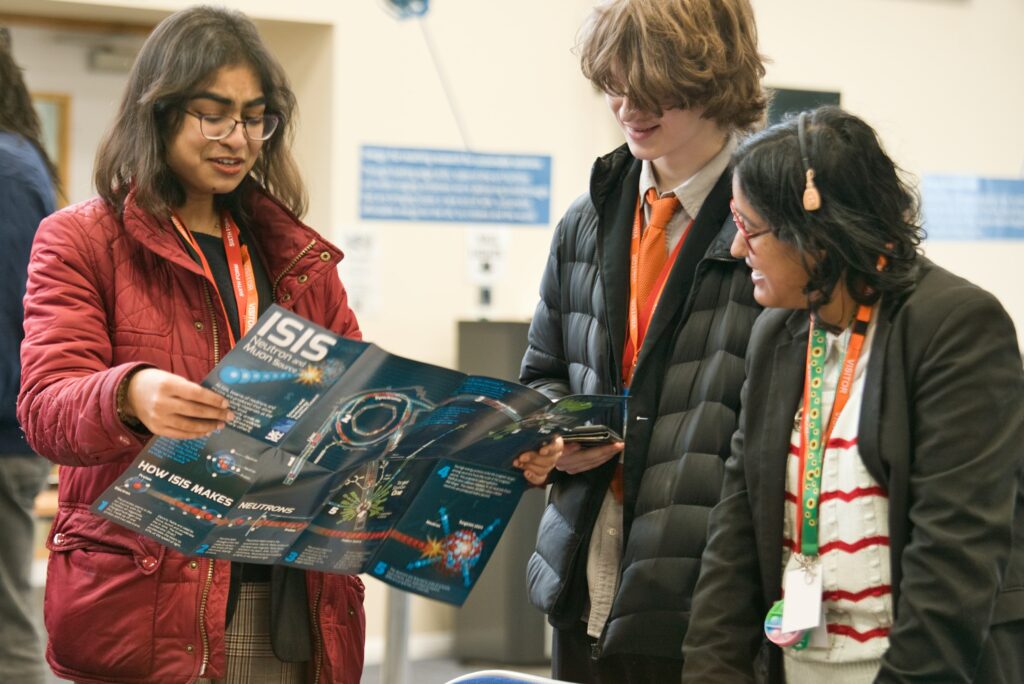
ATLAS inspires the future generation of particle physicists
World-leading particle physicists teach passionate sixth-formers about coding and more.
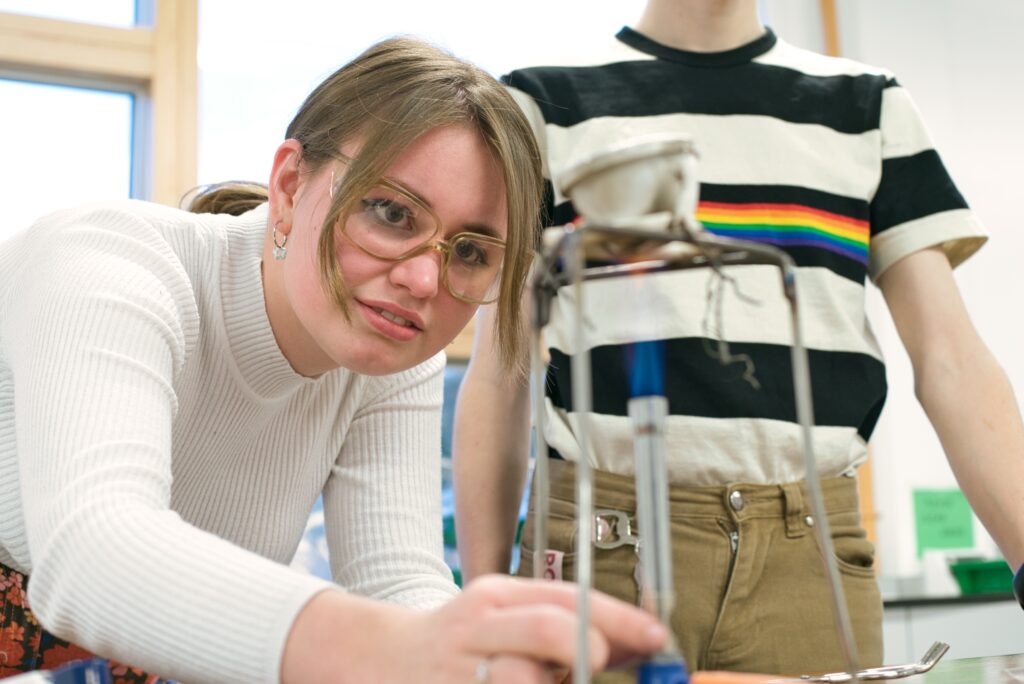
The top 10 career choices for teenagers in the UK
Our director Jo Foster explains how doing research can benefit school students’ future careers.

Women scientists encourage girls to shine bright in science lessons
Women scientists share valuable advice for girls interested in science careers.
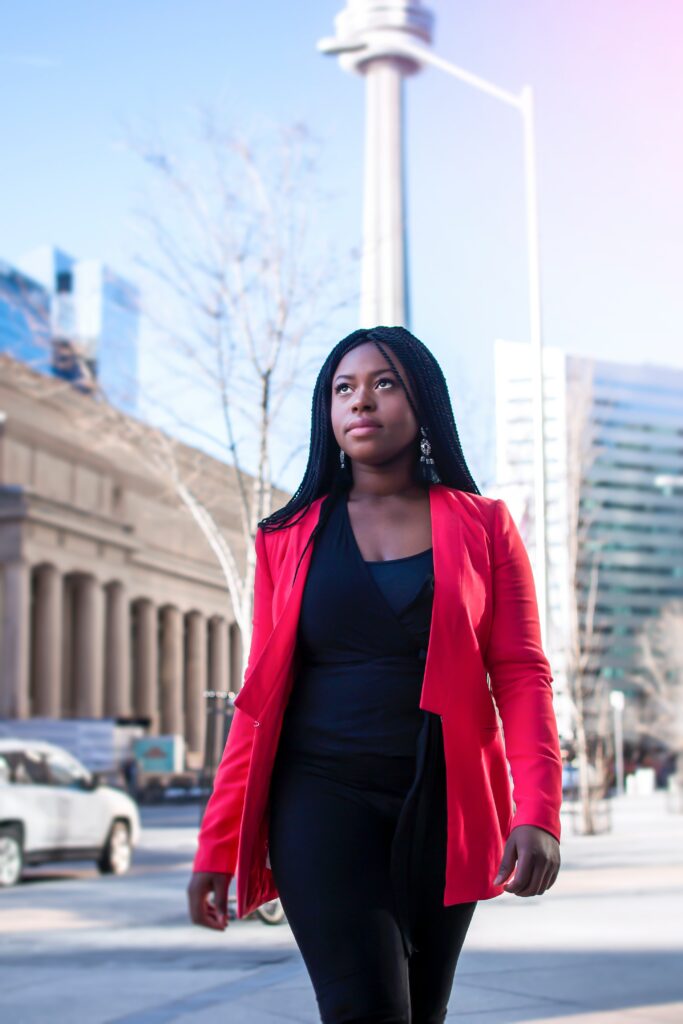
Why we should all love apprenticeships
Jo Foster, director of IRIS, explains why apprenticeships are equally as strong as academic degrees.
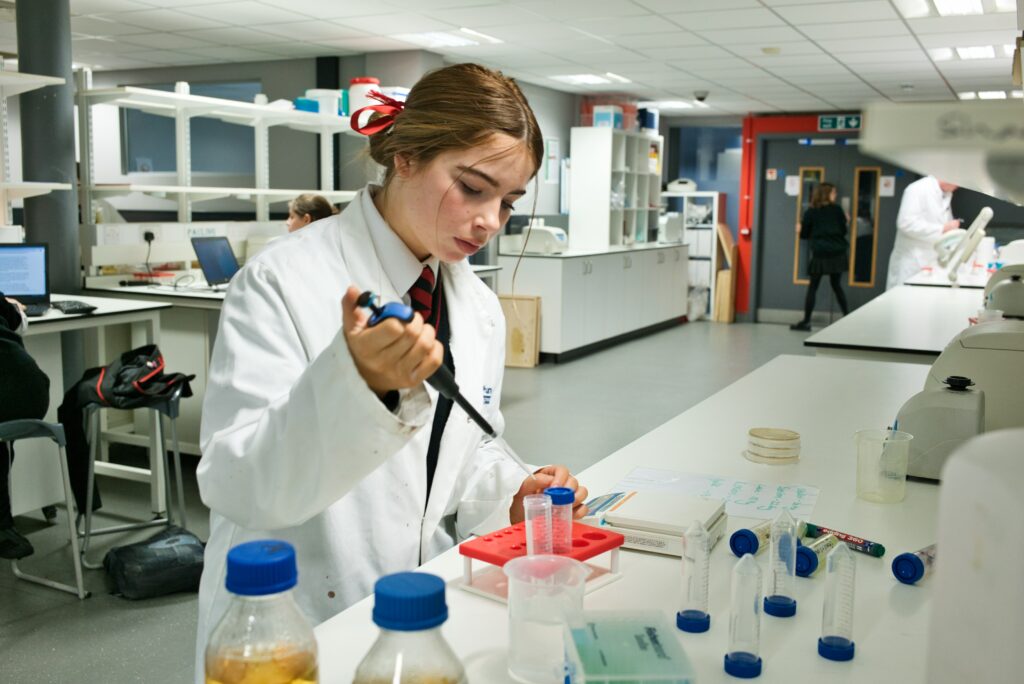
Shattering perceptions of chemistry
Northern Ireland students visit Queen’s University Belfast to kick-start greener fragrance research.
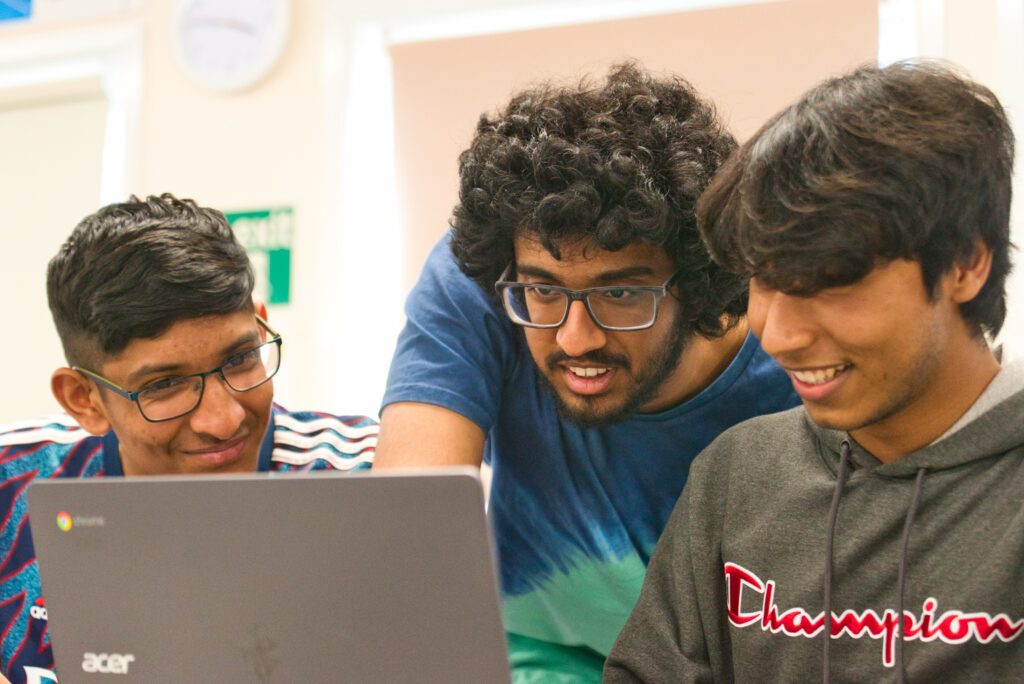
Give students the tools to achieve
IRIS director Jo Foster shares her ideas on breaking down the barriers to STEM engagement.
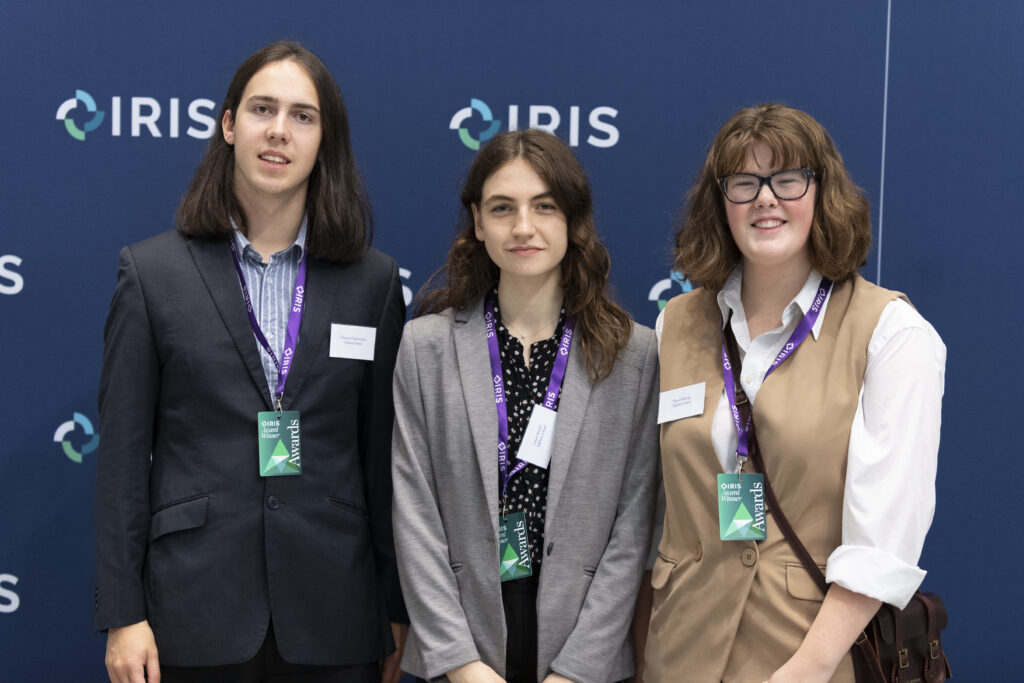
The inaugural IRIS Awards
Our very first awards ceremony to celebrate students and teachers who champion research in the classroom.
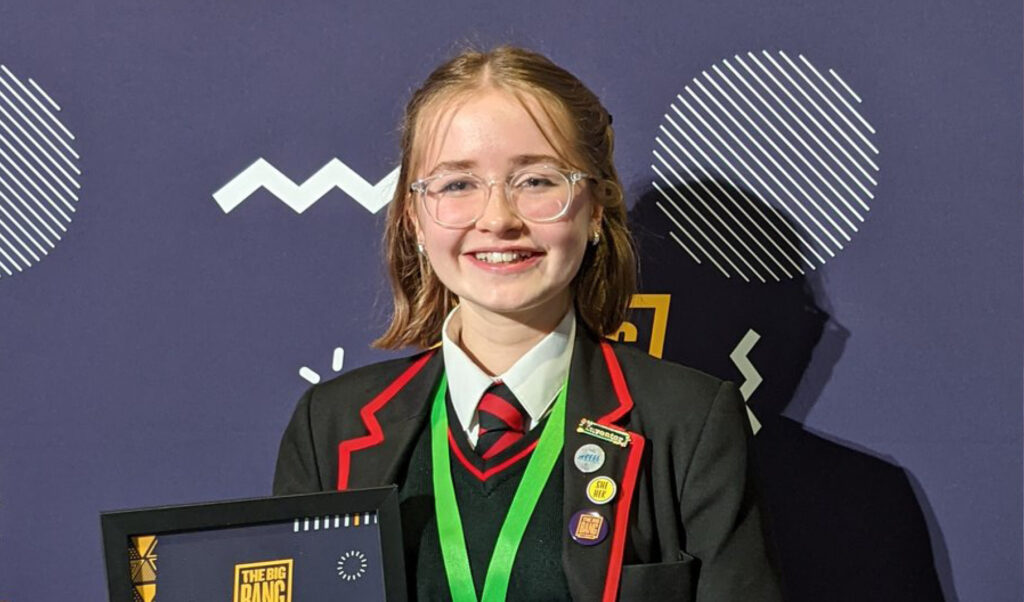
IRIS student wins Young Scientist 2022
14-year-old Connie on why some birds don’t fly and becoming Big Bang’s Young Scientist of the Year.
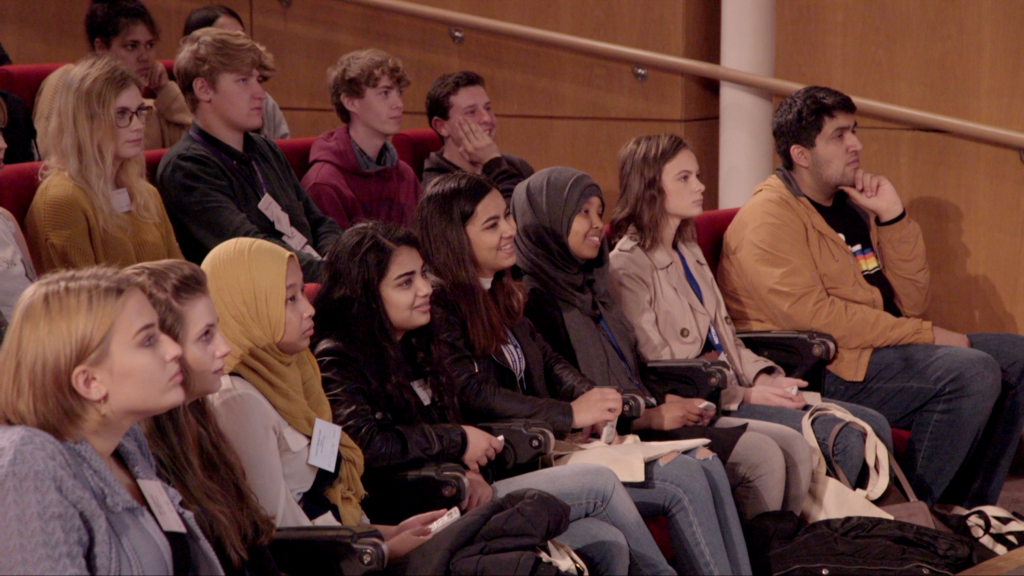
Young researchers share their findings at IRIS Student Conferences 2022
From finding evidence of the Higgs boson to showing how recent lockdowns impacted pollution in London.
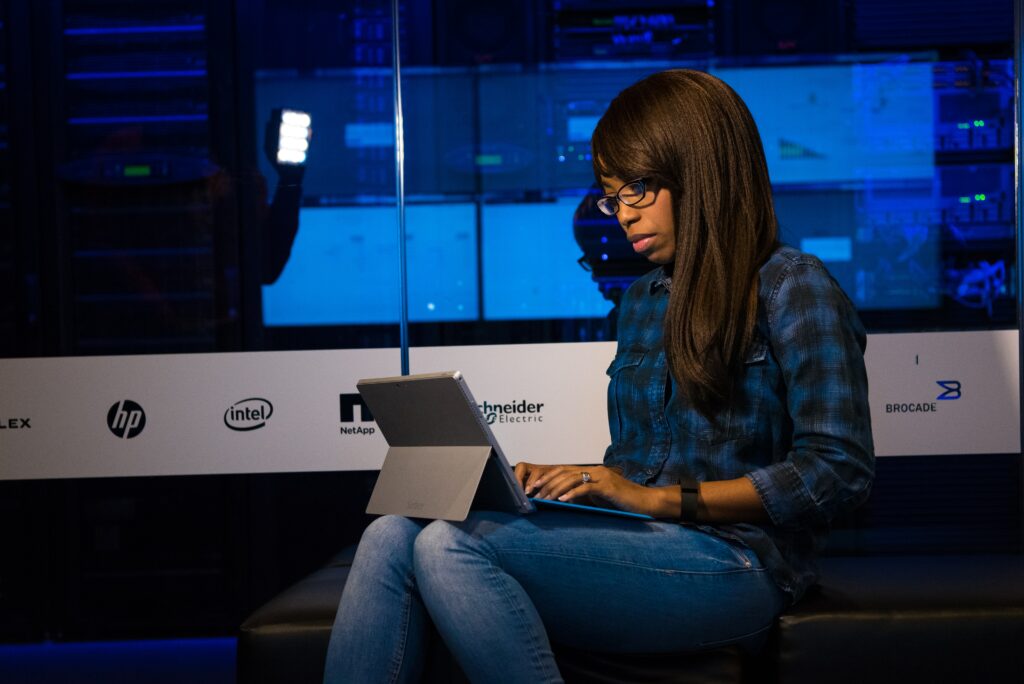
Widening STEM access is necessary and far from impossible
Ignore the social mobility tsar’s comments. There’s plenty we can do about diversity in STEM careers.
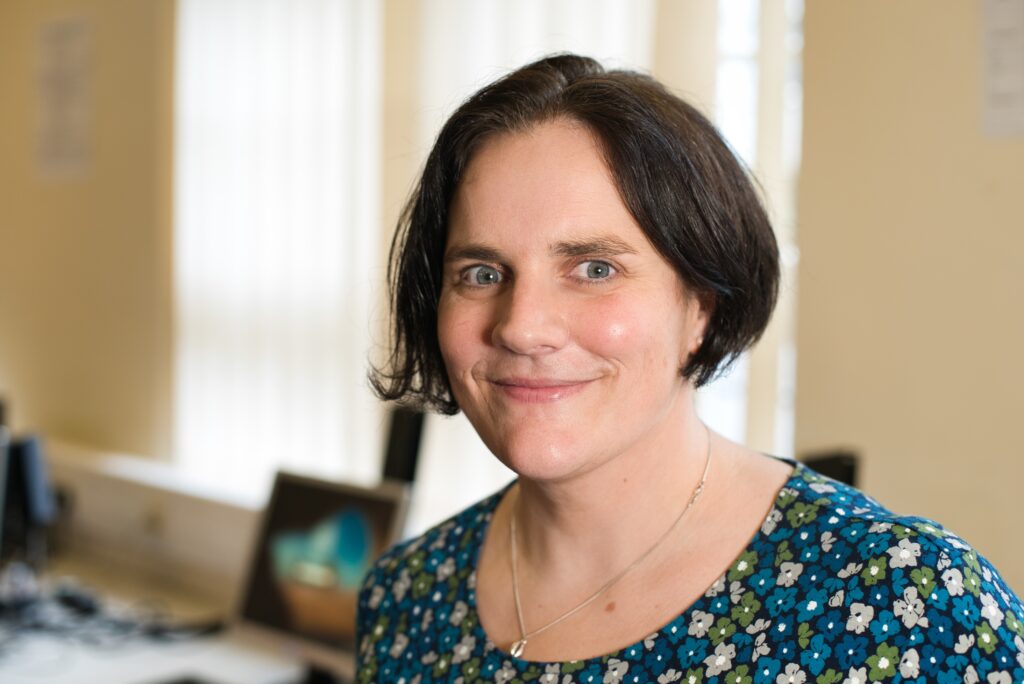
I am not ‘totally fine’ that only 16% of girls study Physics
IRIS director refutes UK Social Mobility Commissioner’s claim that hard maths puts girls off physics A-levels.
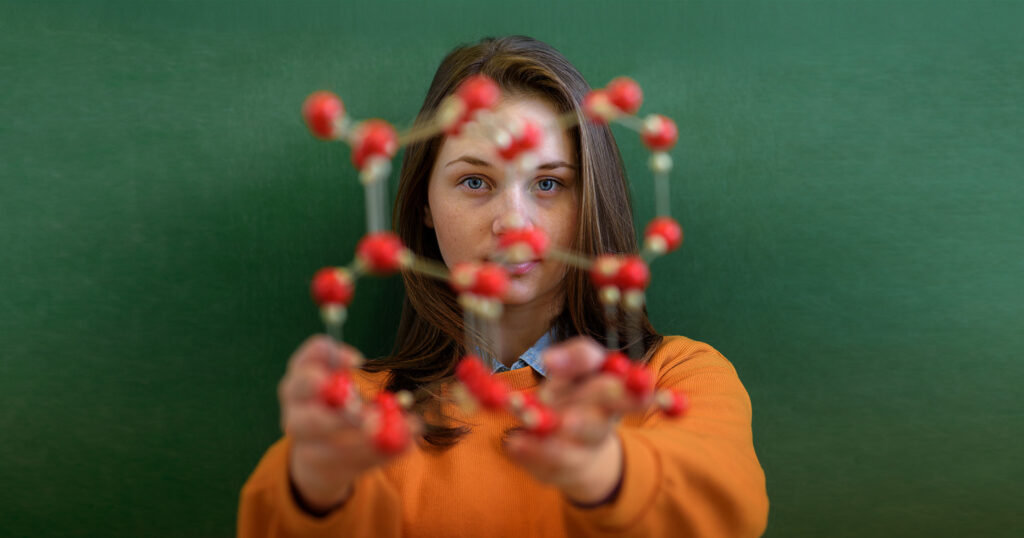
The National Research and Innovation Accelerator – our plan to open up science for young people
We share our plan to help schools embed a culture of research and innovation in their schools.

Apprenticeship reform starts with the school calendar
Want more young people to join your apprenticeship programme? Consider their schedule, says Jo.
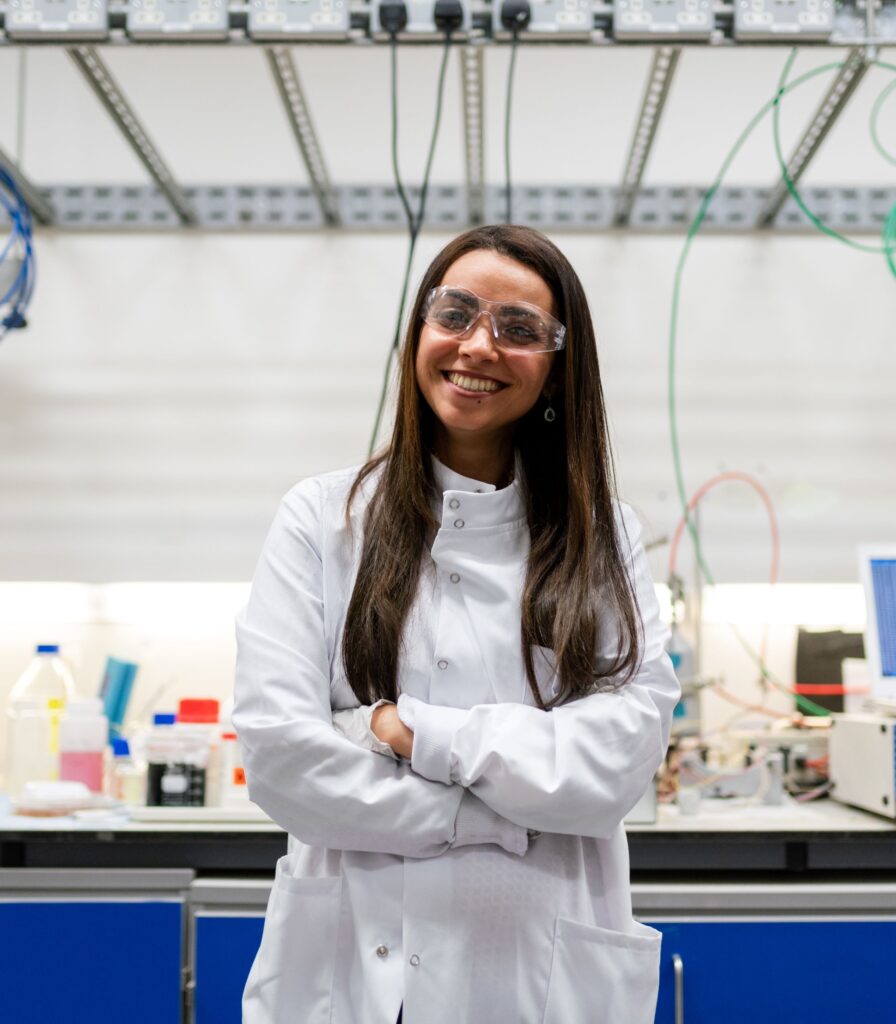
For young people to ‘get’ STEM, they must see the real-world applications
Sean O’Sullivan, a biotech professional, explains how to get more young people into STEM careers.
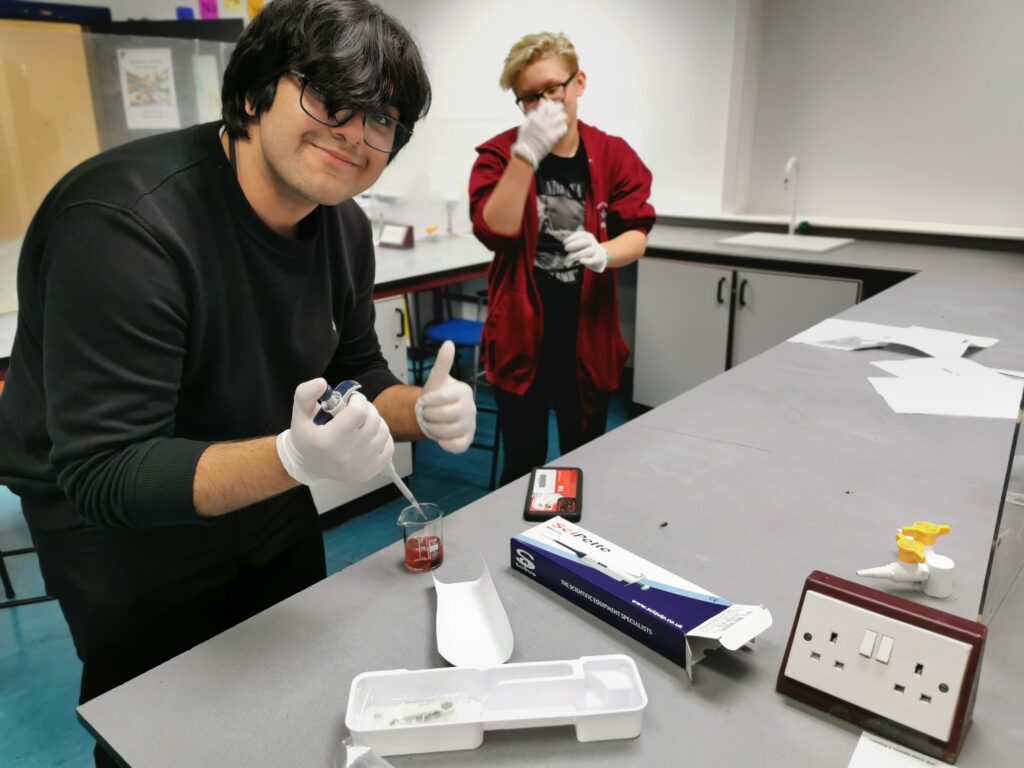
Students share DNA designs at University of Leeds
UK students visited the Bragg Centre to talk research and learn about careers in materials science.
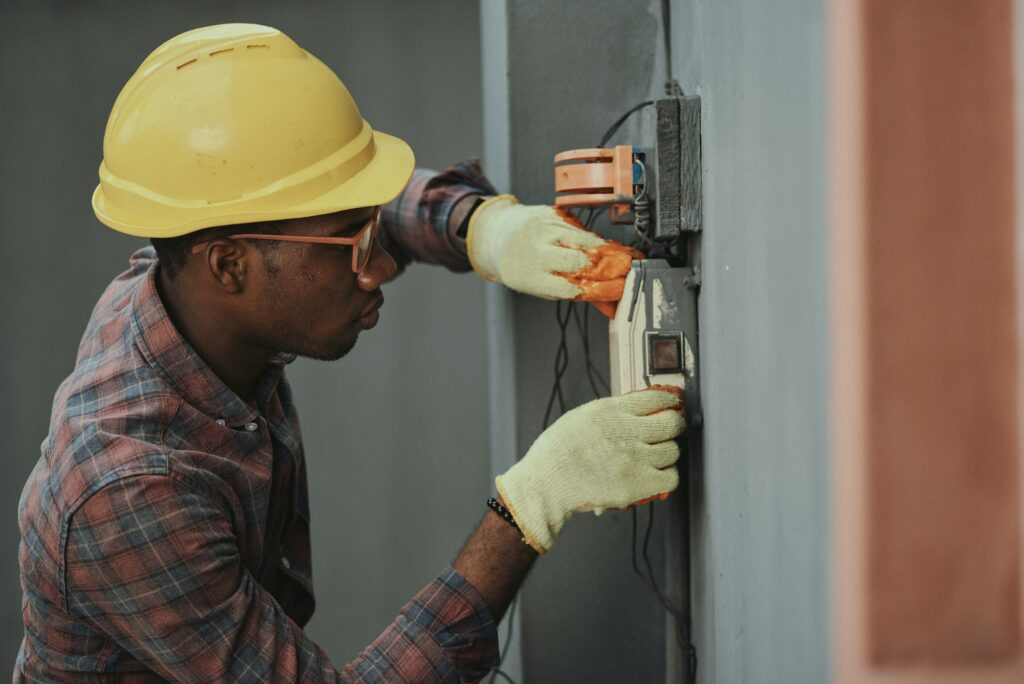
Apprenticeships will unlock our science superpower
Schools must promote apprenticeships if we are ever to become a ‘science superpower’, says Jo Foster.

Northern Ireland students join scientists on salty study
Teens work with Queens University to explore ionic liquids and how they could shape the 21st century.
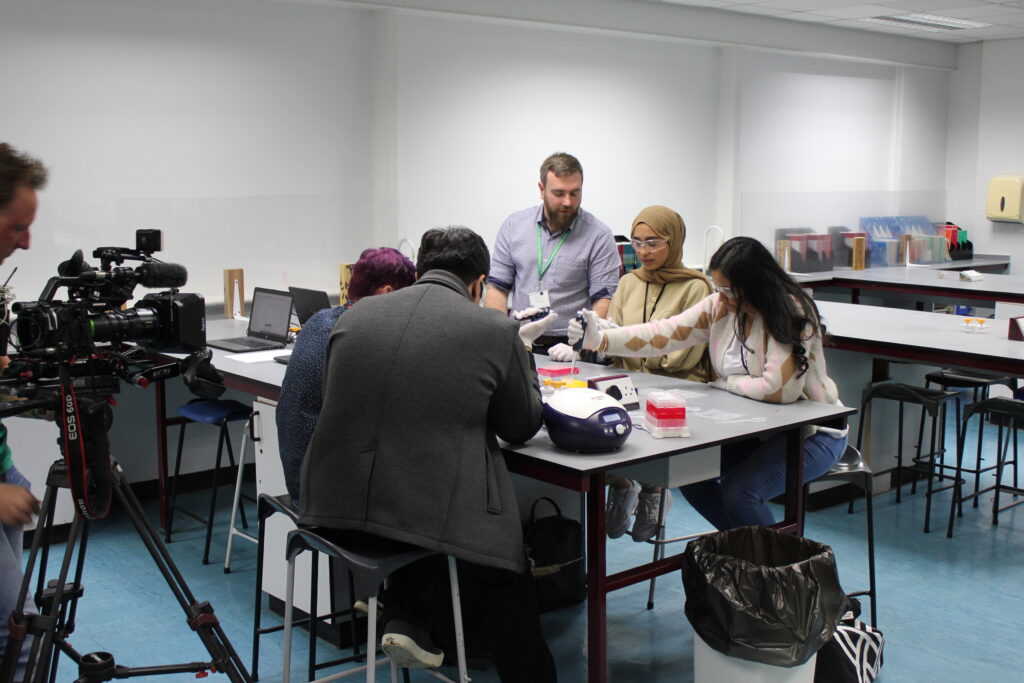
BBC Look North investigates student research in Dewsbury
Reporters visit St John Fisher to uncover young students interesting research using DNA Origami.
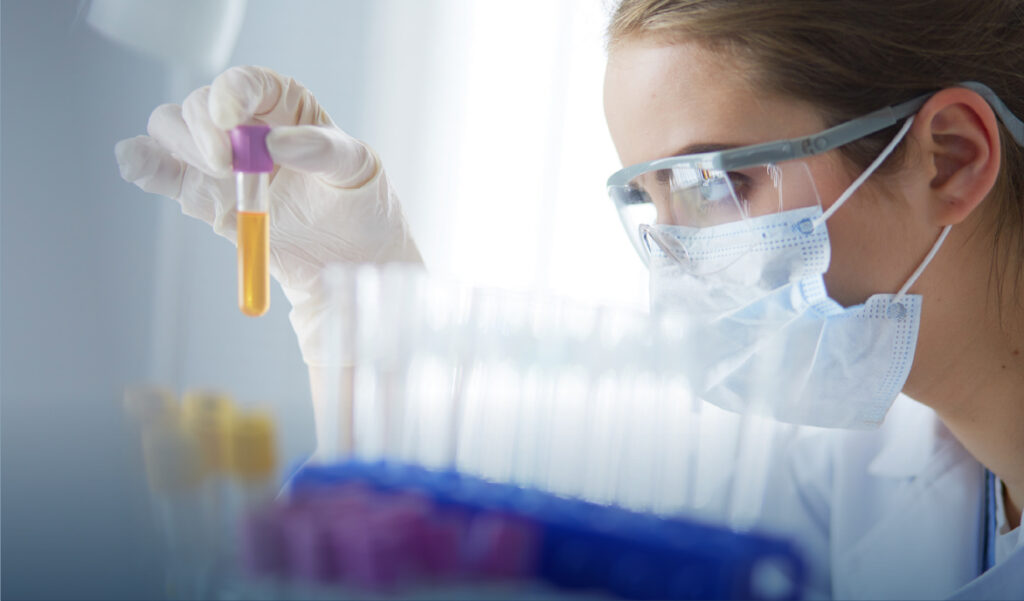
Girls in STEM: A cause for celebration, not complacency
Despite postitive GCSE and A level results, gender imbalance still exists in the sciences, Jo Foster.
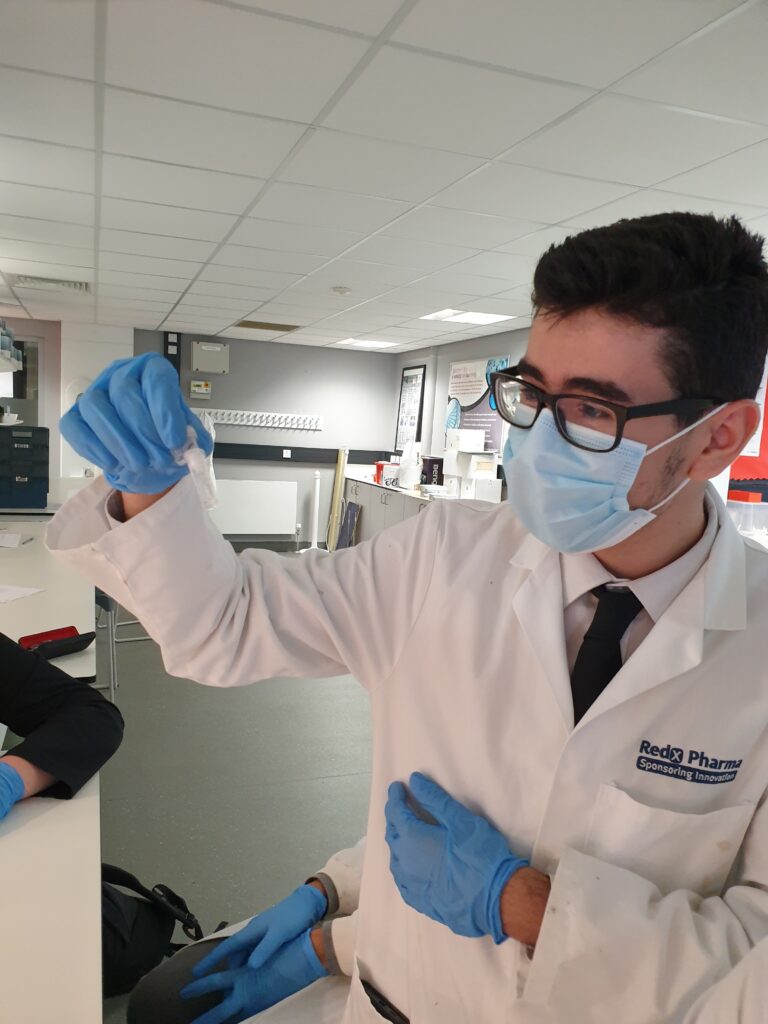
Stuff clay, let’s play with DNA
Could these be the youngest people to construct artificial structures using DNA? Our latest pilot project.
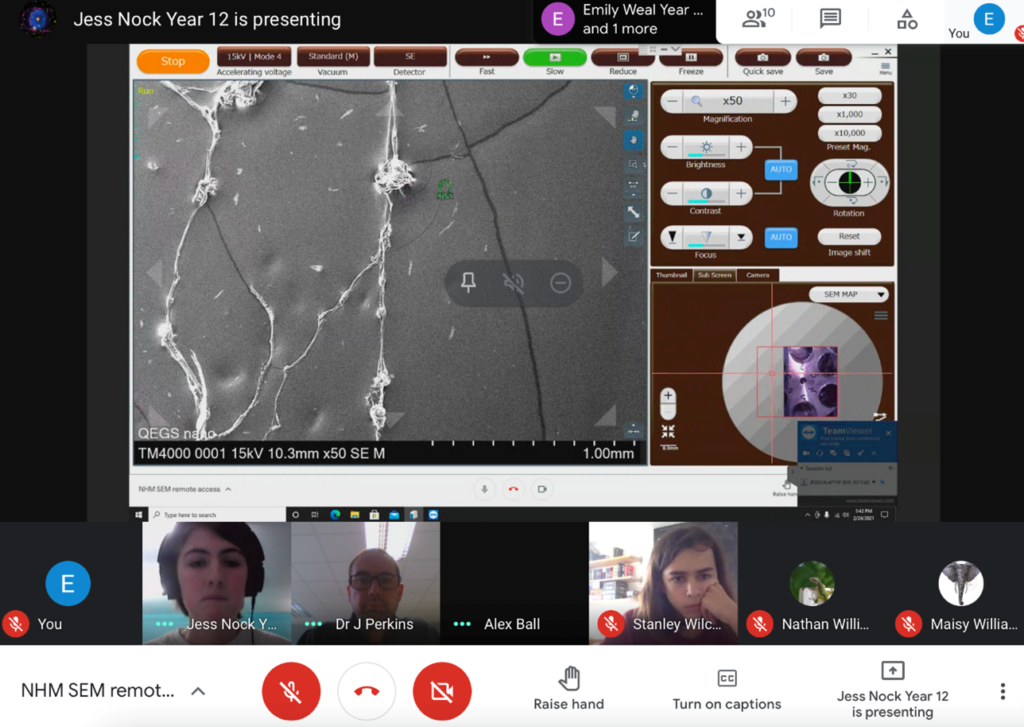
What’s under the microscope? Plastic, worms and flies.
Young people explore interesting objects using the Scanning Electron Microscope.
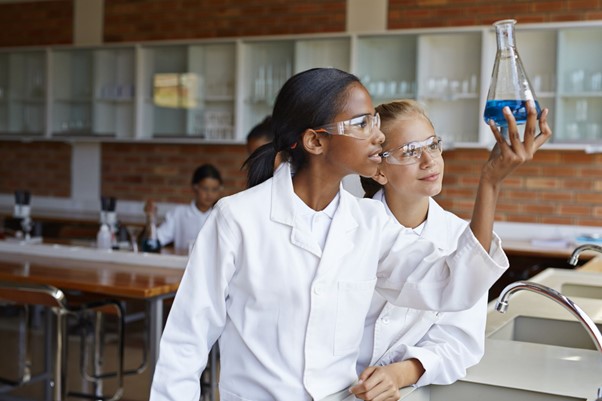
Research must be at the heart of science education
Jo Foster argues that research in schools is key if the UK wants to become a science super power.
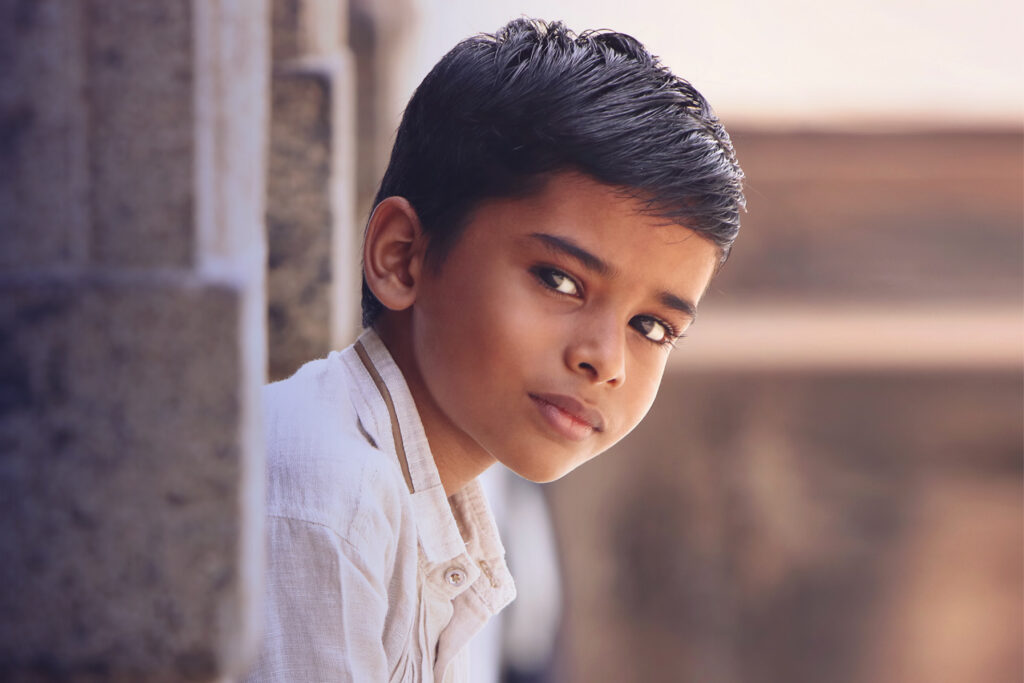
UK students decode parasite genome to help prevent childhood infection
Students efforts could support the development of a vaccine to prevent a disease linked to malnutrition.
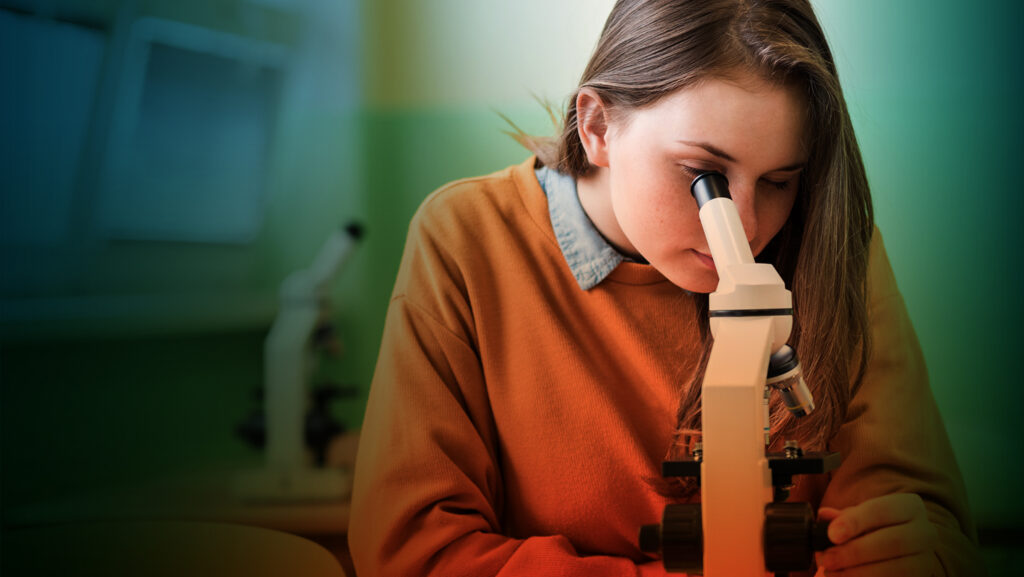
CPD to help embed student-led research in schools
Teachers can sign-up for our courses held at the National STEM Learning Centre in York
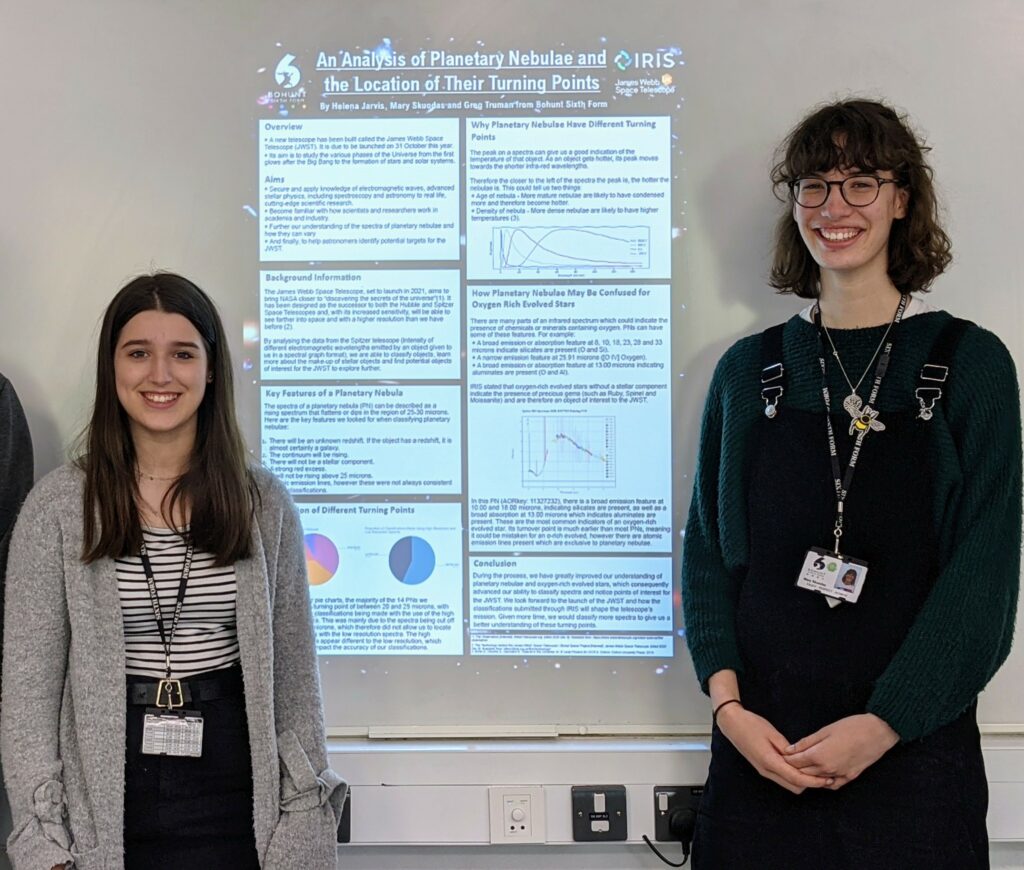
IRIS Virtual Conference: Resilience in a tough school year
The top research projects presented by secondary students at this year’s conference.

Could research reignite teachers’ passion for science?
An evaluation of 50 teachers shows how IRIS projects/student research can improve job satisfaction.
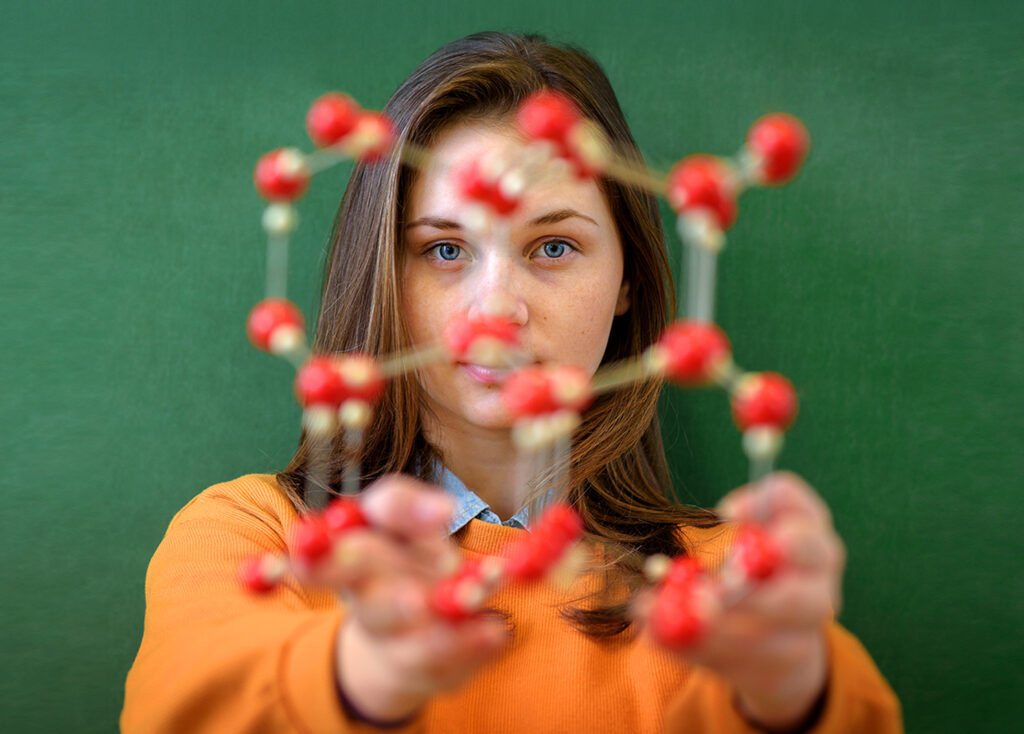
IRIS launches national STEM framework
Our framework to help leaders develop an effective whole school STEM strategy.

Where are tomorrow’s scientists?
STEM Director at Chipping Campden School on why investigative work is key to educating future scientists.
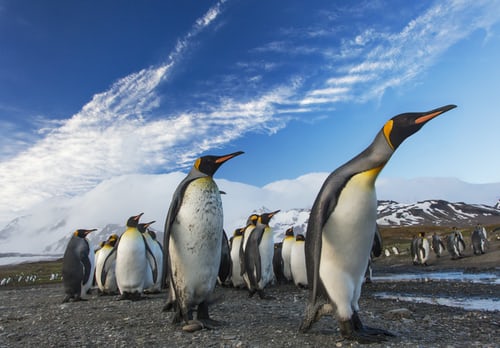
Scottish students inspire penguin discovery
The British Antarctic Survey acknowledged students in their discovery of a new penguin colony.

Education is at stake
Why it’s more important than ever to get teens involved in real research

Students make strides on human whipworm genome
Students complete over 8,500 annotations of the genome of the human whipworm, Trichuris trichiura.

Students given the chance to study the stars at home
IRIS and STFC launch a project to boost the research skills of secondary students while learning from home.

IRIS cancels conferences
Due to the progression of the coronavirus COVID-19 outbreak, we must cancel our conferences this spring.
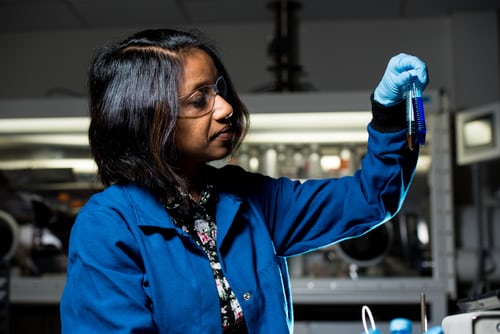
Empowering more girls into research careers
Lauren Charters on how an IRIS project shaped her career aspirations and helped her get into university.
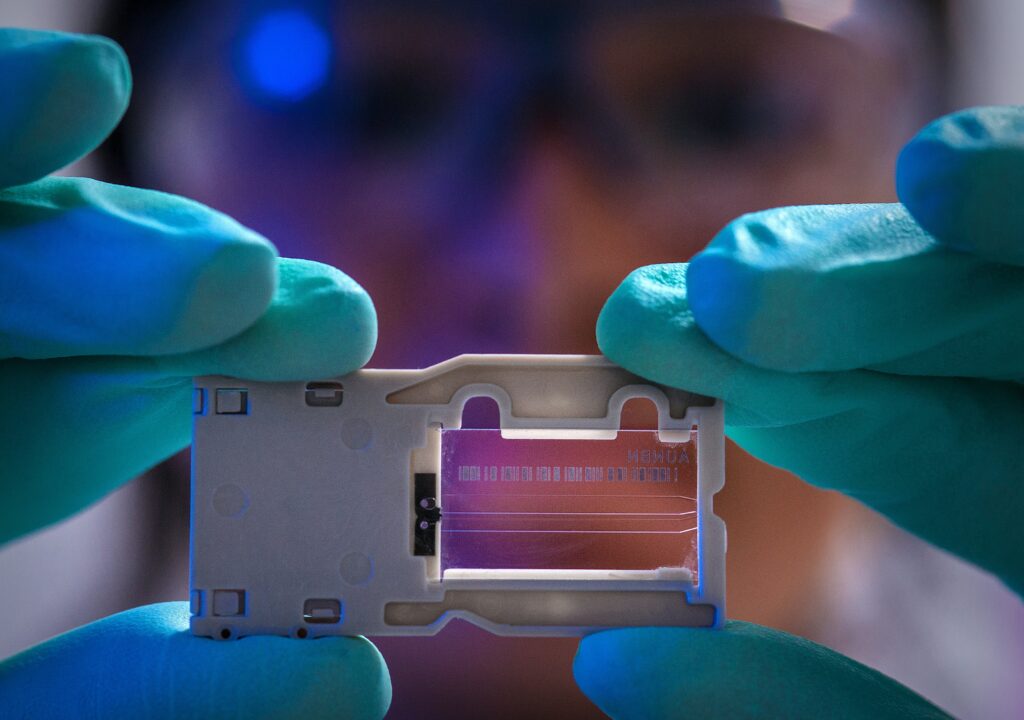
Jo Foster on how to help your students shine at science
Catherine Lough, Tes staff writer, talks to Dr Jo Foster, IRIS director, on teaching STEM to students.

UCL Professor Michael Reiss joins IRIS board of trustees
UCL’s Professor of Science Education joins our board of trustees.

Higgs Hunters wins University of Oxford Award
IRIS celebrated at the Vice-Chancellor’s Public Engagement with Research Awards.
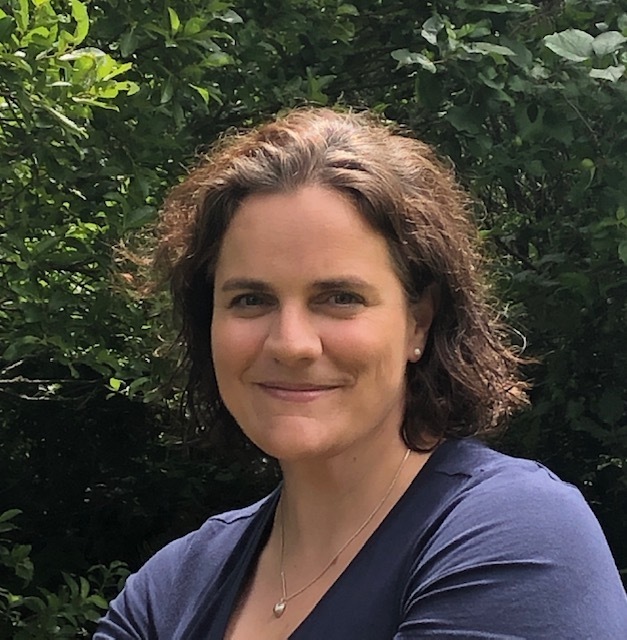
IRIS appoints STEM educator Jo Foster as new director
Director of the Nexus STEM Programme, Cornwall School of Maths & Science appointed IRIS Director.
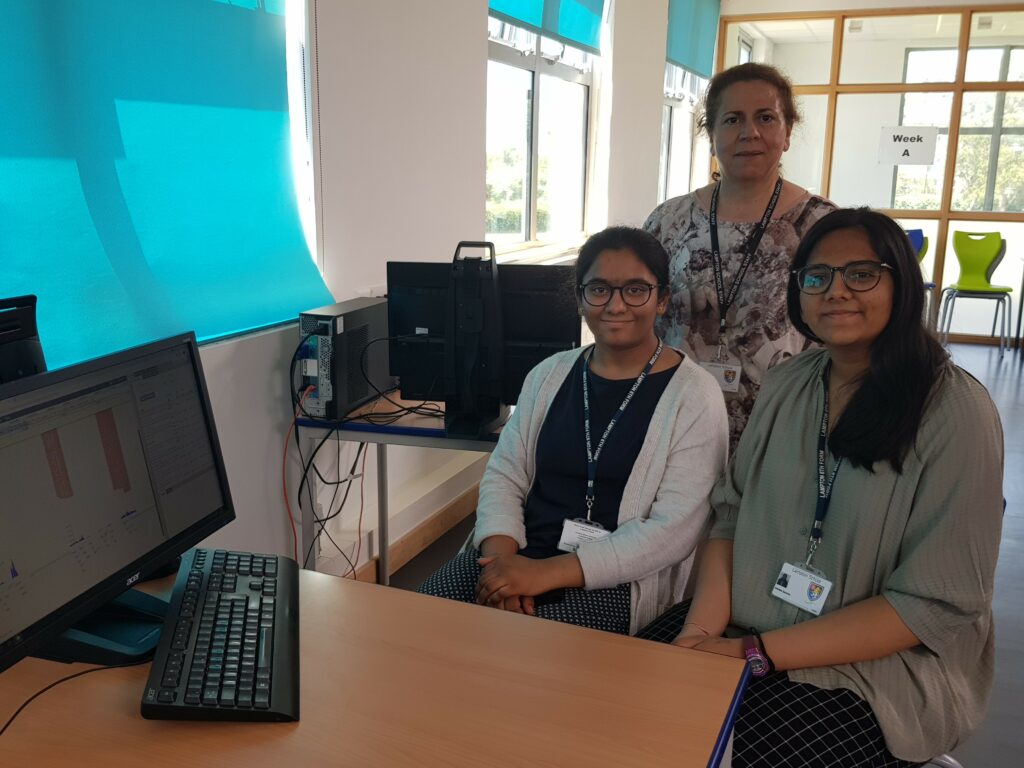
Lampton physics technician wins Gratnells award
Lampton School technician wins Gratnells Science Technician of the Year Award.
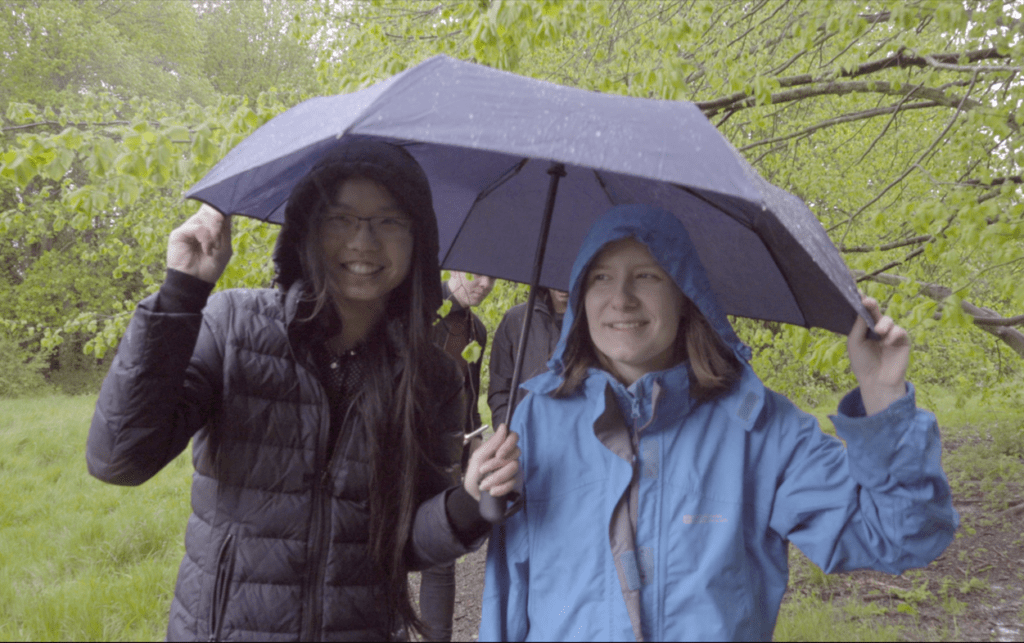
Tes features IRIS student research on mental health
IRIS students research on nature and mental health featured in the leading education publication.
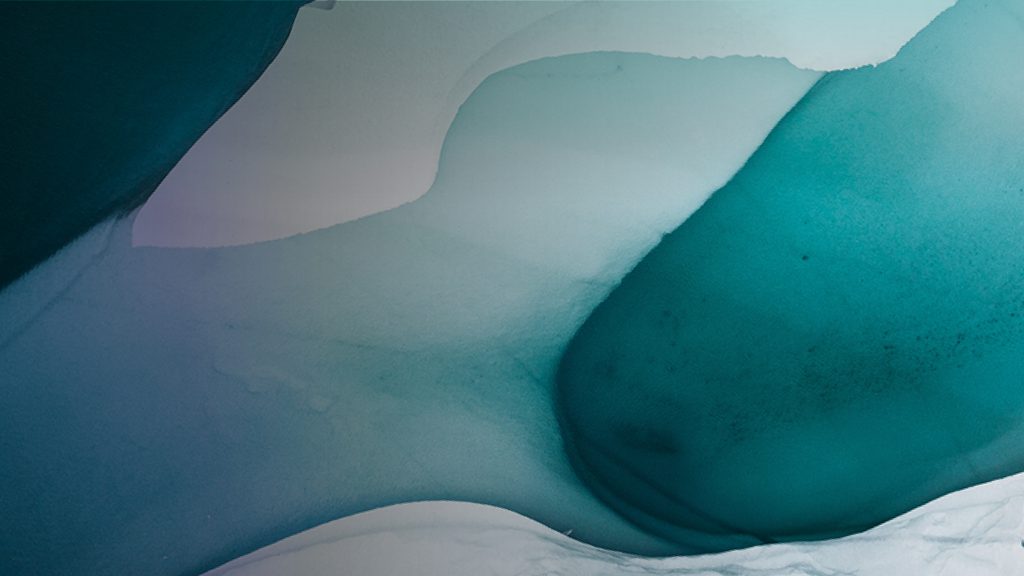
IRIS awarded Garfield Weston Grant for glacier research
The Garfield Weston Foundation grant will enable IRIS continue to run school hubs ran by a teacher scientist for a year.
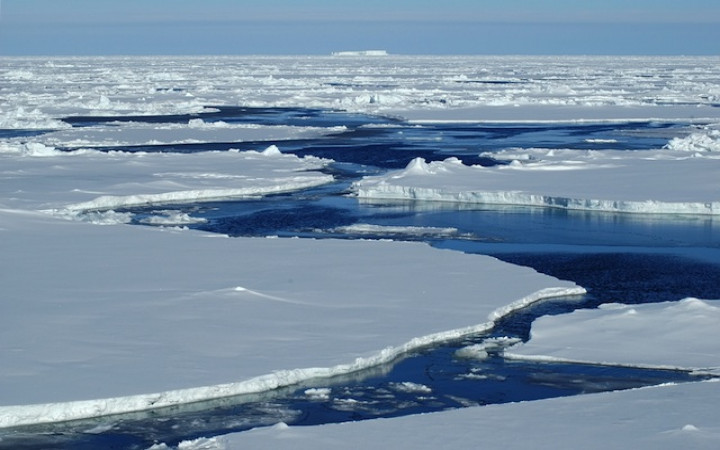
MELT – a polar ice caps project for schools
IRIS and the UK Space Agency launch school research projects investigating the rate of polar ice cap melting.
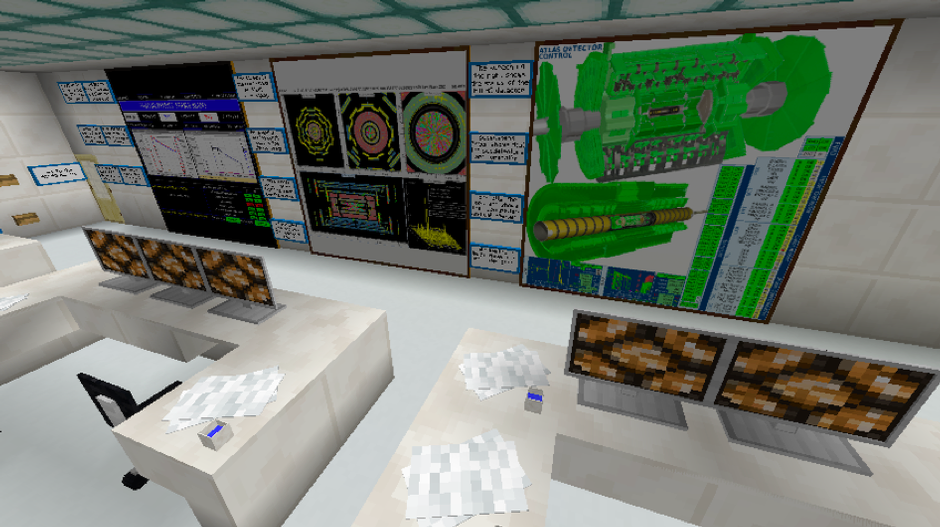
It’s Minecraft: teens create replica of CERN
UK teenagers made interactive museum of the ATLAS detector at the Large Hadron Collider in Minecraft.

IRIS students contribute to tropical disease research
IRIS students stand to become world experts through their participation in Genome Decoders, a research project launched in partnership with Wellcome Genome Campus.
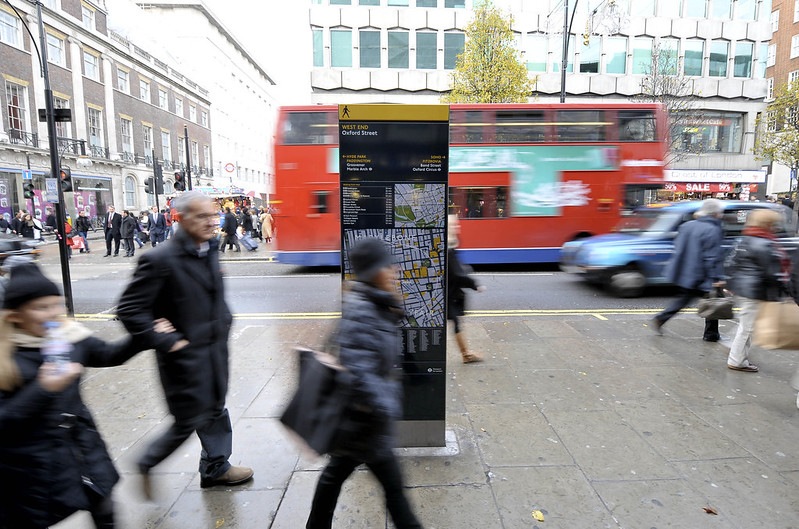
Transport for London- Bring big data into classrooms
Our new project looks at how TFL uses data to improve millions of people’s journey every day.

NASA to launch TimPix space radiation project in the U.S.
IRIS is working with NASA to get American students involved in the TimPixproject.
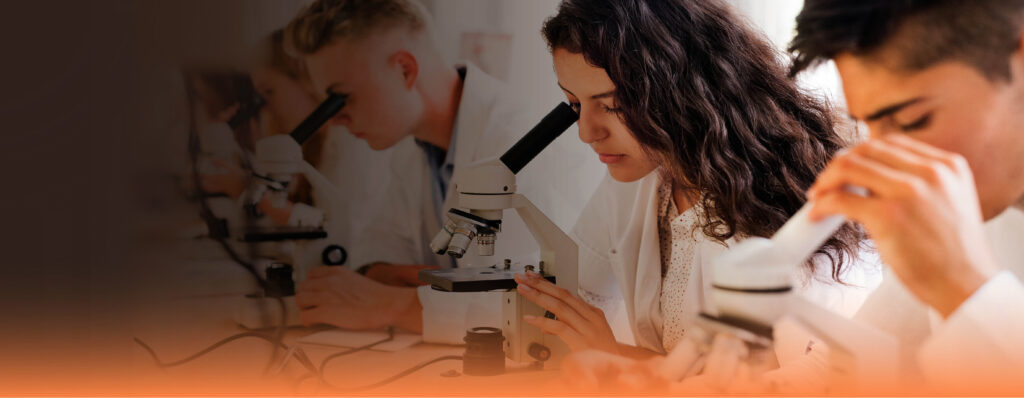
IRIS students break new ground in science
UK scientists breaking new ground in science and not one of them has so much as a university degree.
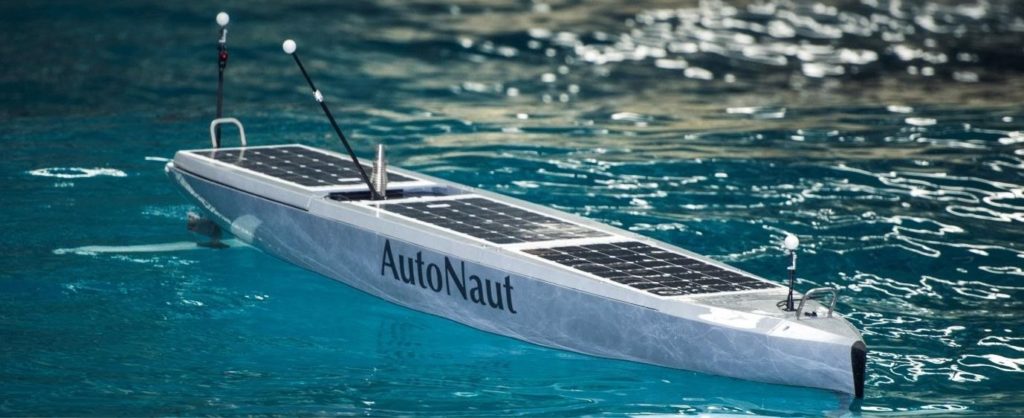
Students research radiation levels in the world’s oceans
Students from a school in Canterbury look to analyse radiation levels in oceans near nuclear reactors in real time.
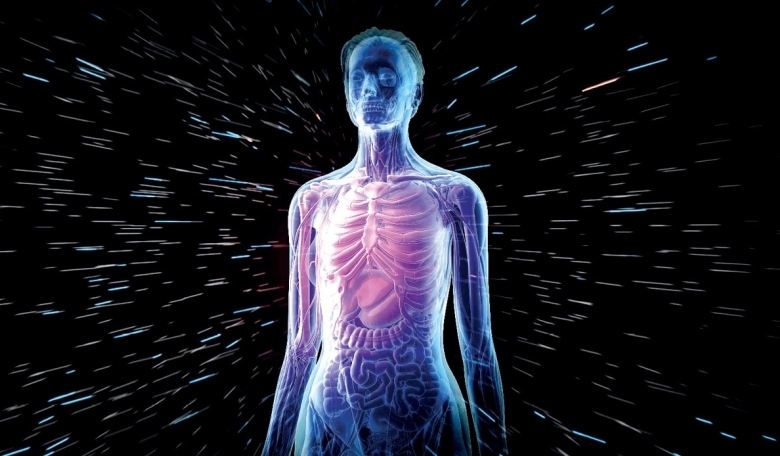
Using NASA data to analyse radiation exposure in space
High school students use NASA data to analyse astronaut radiation exposure in space.

Academics and scientists launch the Institute for Research in Schools
Charity set to change STEM education by empowering young people to join the scientific community.